We are committed to Carbon Neutrality by 2040. Track our prog re ss on www. MaisonDenisESG.n et . ww w. MaisonDenisES G. net.

(Environment, Social and Governance) Publication 07 Year 2023
E.S.G. REPORT
MAISON
ALL GREEN
2030 BEST HR
EQUITY
SOLAR
OPTIMISATION DENIS ASIA PACIFIC PTE LTD
DENI S SUST AINABL E COMMITMENT S RESPONSIBLE PRODUCTION & SUPPLY
BUILDINGS BY
& GENDER
PACKAGING RECYCLABILITY BY 2030
& ENERGY
The ESG report 2023 is dedicated to the memory of Ms. Liew Chui Ling, R&D Manager, GFSB, and Mr. Cédric Baslé, General Director, DGM, two young and promising managers who passed away in their thirties. They were loved and appreciated by all. They will be missed.
D e n i s A s i a P a c i f c P t e L t dE . S . G . R e p o r t 02
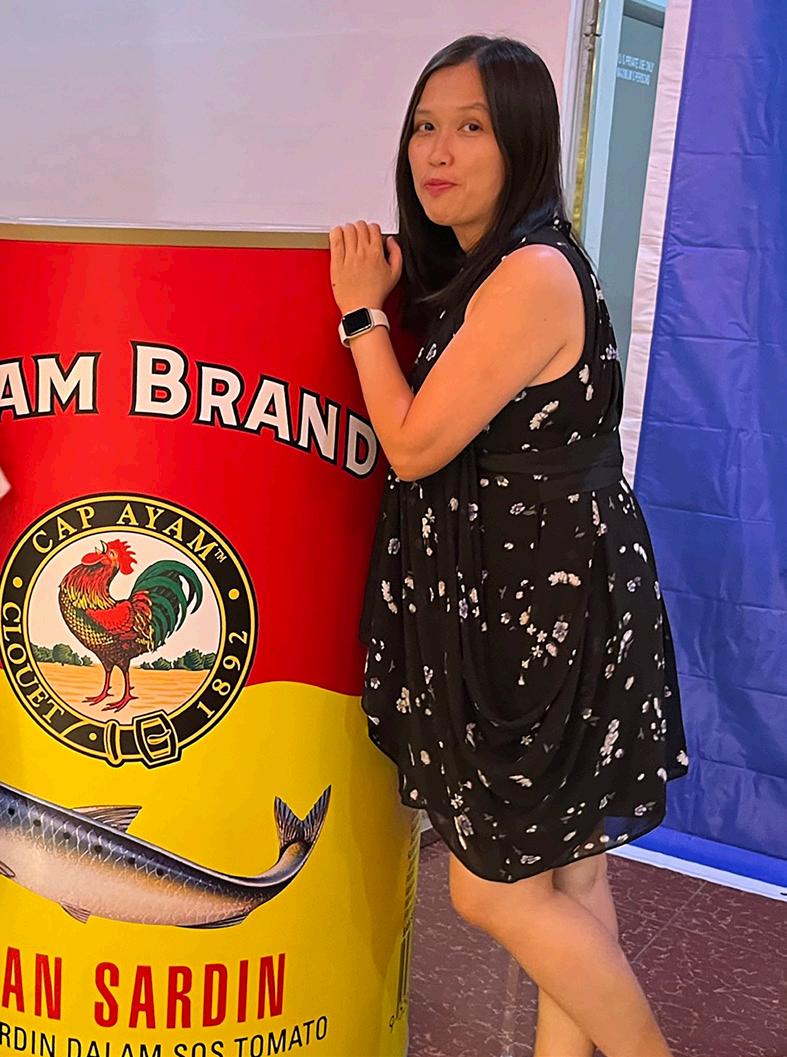
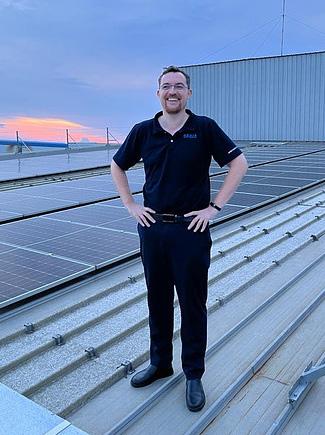
P u b l i c a t i o n 0 7Y e a r 2 0 2 3 03
Our main ranges of products (pelagic fish like sardines or mackerel, coconut products, beans, soya sauces...) are among the foods with the lowest carbon footprint. Besides being an essential item, food brings families and friends together for moments of sharing and love. The illustrations in this report feature some ideas of recipes done with our products.
D e n i s A s i a P a c i f c P t e L t dE . S . G . R e p o r t 04

Rice porridge top-up with Ayam Brand™ tuna.
D e n i s A s i a P a c i f c P t e L t dE . S . G . R e p o r t 06 In Memoriam Our Commitments From our Chairmen 16 About Denis Asia Pacific Maison Denis’s History 17 Our vision of the Future 19 Our companies in the ESG Scope 22 28 About our Report An ESG committee at the highest level of Management 29 Problem-solving Strategy 31 Materiality Assessment 32 Accuracy of Data 33 Availability of the Report 34 Feedback & Contact 35 37 Our ESG Strategy and Results ESG Scorecard 38 ESG Awards 40 United Nations Global Compact 44 Our E.S.G. Plan 49
P u b l i c a t i o n 0 7Y e a r 2 0 2 3 07 58 Environment Climate Change Actions 59 Resources Management 77 Better Packaging 82 Green Buildings 90 Environmental Certifcation 95 Supply Chain Sustainability 96 Life Cycle Assessments 110 114 Social Responsibility Our People 115 Our Consumers 136 Our World 142 152 Governance & Ethics Governance 153 Ethics 155 Our commitments Conclusion From our CEO

Raspberry mousse with Alce Nero™ Honey and Ayam™ coconut cream

From our Chairmen
This seventh ESG report is dedicated to our dear colleagues who passed away in 2023: Mrs. Liew Chui Ling, R&D Manager, GFSB in Malaysia and Mr Cédric Baslé, General Director, DGM, in Vietnam. We will remember them for their respective contributions to Maison Denis and in particular to our ESG achievements.
Like all companies today, Maison Denis is under pressure to make meaningful contributions to a more sustainable society, aiming for a more positive economy; we are challenged to examine our impact on environmental and social resources.
We are ultimately responsible for the tone at the top which will cascade down to every level of the company and for overseeing the implementation of our company’s long and short-term strategic plans; these play a crucial role in fostering an environment that will support the embedding of sustainability into the strategies of the companies, for which we are the moral compass.
Our voice, attitude and decisions must signal a willingness to our companies’ management toward elevating social justice, creating business value and meeting regulatory & environmental responsibilities. We encourage and push our companies to set
D e n i s A s i a P a c i f c P t e L t dE . S . G . R e p o r t 10
sustainability objectives that are in line with what makes the most sense for our businesses.
The Denis family has embraced the journey toward sustainability as this was both a natural transition and adaptation of the Group’s historical values to the world of today. We remain convinced that we all have a duty to do our part in search of positive impacts to protect our planet and be proud to be able to pass it on to future generations.
Experience of the long term for a company like ours and of this age allows us to be credible in our choice of objectives and to have the ability to achieve them.
For family shareholders, sustainability could ultimately be defned as the greatest desire to leave the most appropriate legacy for future generations :
- a successful Group that our employees are proud to work for in a safe environment and that shares our values
- trusted, high quality and innovative brands that our customers are proud to buy from generation to generation, and - a sustainable Group with over 160 years of history and experience that we are proud to own and pass on to future generations.
P u b l i c a t i o n 0 7Y e a r 2 0 2 3 11
Maison Denis continues to look towards the future and remains committed to delivering the following ESG goals :
(1) carbon neutrality by 2040
(2) 100% packaging recyclability by 2030 and
(3) 100% Green Building certifcation by 2030.
The 10 pillars of the United Nations Global Compact, our 10 mediumterm commitments and our 5 Sustainable Development Goals detailed in this report defne the framework within which our efforts are deployed.
2024 will be another busy year as far as ESG is concerned:
1) Corporate Sustainability Reporting Directive (CSRD)
2) ESG Japan
3) Centralized Fish Processing Plant (CFPP)
4) Fish Protein Concentrate for Animal Feed (FPC)
The 5th generation descendants of founder Etienne Denis are indeed very proud to sign this seventh ESG report. We would like to take this opportunity to thank once again each and every employee and partner for their tremendous efforts, support and creativity in continuing with us to make this sustainability journey possible.
D e n i s A s i a P a c i f c P t e L t dE . S . G . R e p o r t 12
The recognition of our efforts proves the importance of this journey and motivates us all the more to go the extra mile.

Daniel Denis
ESG Committee Chairman Vice-Chairman of Maison Denis SA.

Nicolas Denis Chairman of Maison Denis SA.
P u b l i c a t i o n 0 7Y e a r 2 0 2 3 13

Breakfast time with Ayam Brand™ baked beans

About Denis Asia Pacific
D e n i s A s i a P a c i f c P t e L t dE . S . G . R e p o r t 16
Maison Denis’s History
Maison Denis has a fascinating 161-year history. The vision, mission, solid values, and business principles provide the foundations for this exceptional longevity. The descendants of Etienne Denis are still at the helm of the businesses.
Denis gets its strength and stability from three different sectors, in which the Denis companies are able to achieve and maintain a high level of professionalism, paired with a historically innovative spirit: food & beverages, health sciences, and consumer goods distribution.
This ESG report covers the food & beverages activity which started in 1954 when Denis took over the A. Clouet company in Malaya with its main food business: Ayam Brand. Ayam Brand, founded in 1892 in Singapore by Mr Alfred Clouet, became an international brand distributed in more than 30 markets on three continents and is ranked 520th consumer brand in Asia (Asia’s Top 1000 Brands 2021, Nielsen).
The food & beverages activity is directed by Denis Asia Pacifc Pte Ltd (DAP), which serves as the operational headquarters for Denis, regrouping most of the functional services, including ESG. The ESG scope covers the food and beverage business of three holding companies: Denis Asia Pacifc Pte Ltd., SFI Supplies Management Pte Ltd and Denis China Co. Ltd.
P u b l i c a t i o n 0 7Y e a r 2 0 2 3 17
To cater for the expansion of its food business, Denis invested heavily in production and logistics. The main production & logistics site is in Taiping, Perak in West Malaysia. It employs more than 1000 staff. The Mafpro site consists of three factories and produces mainly canned fsh. The Guinea Foods factory cans fsh and sauces. Guinea Foods consists of two factories to meet the growing demand for sauces. Taiping is also an important logistics base for the Group with two large warehouses and cold-room sites: SFI phase 1 and SFI phase 2.
Alce Nero and Maison Denis formed a joint venture in 2004 to promote and distribute Alce Nero, a leading Italian organic food brand, throughout Asia.
In 2017, Maison Denis opened a new manufacturing site near to Ho Chi Minh in Vietnam, with the aim of distributing its food brands in the Greater Mekong region.
Since 2020 DAP has regularly invested in food related start-ups: food tech, R&D, distribution or advertising companies.
D e n i s A s i a P a c i f c P t e L t dE . S . G . R e p o r t 18
Our Vision of the Future
Denis is well positioned to beneft from the key trends that are expected to shape our future markets, namely:
• continued urbanization combined with greater connectivity that requires convenient, safe, healthy and cross-cultural food.
• pursuit of investment in the understanding of better health through good nutrition, clean food, and better hygiene.
• the pleasure of food discoveries and of creating moments of reunion and surprise for family and friends centered around food; we see this as a key preoccupation across the world.
We see many opportunities for the Group in the coming years:
• the opportunity to make our brands truly global by reaching more consumers worldwide.
• the opportunity to develop new & innovative segments such as ready-to-eat meals, frozen foods, foods on-the-go and foodservice solutions that better address the needs of new consumers.
• the opportunity to promote the cultivation, manufacturing and use of organic & natural foods in the region.
• the opportunity to develop and promote the use of plant-based
P u b l i c a t i o n 0 7Y e a r 2 0 2 3 19
alternatives with the objective of becoming more environmentally impactful.
• the new opportunities that will be brought about by the next big wave of massive investment in infrastructure in ASEAN in the next 10 years.
• and the opportunity to grow a sustainable food supply model with a concern for waste, nutrition, and stability and with substantial social impact in society as we envisage it tomorrow.
The scope of our ESG Master Plan has continuously enlarged.
The scope was originally inclusive of (1) Denis Asia Pacifc Pte Ltd, (2) all companies in which Denis Asia Pacifc Pte Ltd is in a position of control in having a majority of shares and (3) SFI Supplies Management Pte Ltd (a sister holding company of Denis Asia Pacifc Pte Ltd.) and its subsidiaries.
SFI works closely and uniquely for Denis Asia Pacifc Pte Ltd. Denis Asia Pacifc shareholders decided therefore that SFI and the companies controlled by this holding should be integrated into the sustainability journey and form part of the ESG report.
In 2019, we decided to enlarge our scope to another holding of the Group, Denis China Co. Ltd which controls the Group business in
D e n i s A s i a P a c i f c P t e L t dE . S . G . R e p o r t 20
China, Hong Kong SAR and Macao SAR.
In this ESG report, “DAP” or “the company” should stand for all companies as defned by the above scope. In 2020, our French distribution company started the “PME+” certifcation process, a special French ESG scheme for French SMEs and had then to pause it due to Covid. Thereafter the company entered a restructuring phase that further delayed the process. Our objective is to integrate our French distribution company into our ESG Scope once certifcation is achieved.
The list of companies is published on pages 22-25.
P u b l i c a t i o n 0 7Y e a r 2 0 2 3 21
Our companies in the ESG Scope
Singapore Holding 21 Tagore Lane
Tel: +65 6459 8133
Denis Asia Pacific Pte Ltd Singapore 787479 Fax: +65 6459 2867
Companies controlled by this holding:
Australia
A. Clouet (Australia) Pty. Ltd. 11 Melissa Place
Tel: +61 2 8814 8086
Kings Park, NSW 2148 Fax: +61 2 9678 9508
Indonesia
PT. Faretina
Jl. Radin Inten II
Tel: +62 21 8690 0868
No. 8, Duren Sawit Fax: +62 21 8690 1336
Jakarta 13440
Malaysia
A. Clouet (Malaysia) Sdn .Bhd. 19 Persiaran Sabak Bernam Tel: +60 3 5191 1069
(Formerly A. Clouet &
Co (KL) Sdn .Bhd.)
Malaysia
Section 26, 40400 Shah Alam Fax: +60 3 5191 1988
Selangor Darul Ehsan
D.D.M Sdn Bhd. 19 Persiaran Sabak Bernam Tel: +60 3 5191 1069
Section 26, 40400 Shah Alam Fax: +60 3 5191 1988
Selangor Darul Ehsan
D e n i s A s i a P a c i f c P t e L t dE . S . G . R e p o r t 22
Malaysia
Mafpro Sdn. Bhd.
Jalan Perusahaan Tiga
Tel: +605-8912704
Kamunting Industrial Estate Fax: +605-8913919
34600 Taiping, Perak
Malaysia
Guinea Foods Sdn. Bhd.
Jalan Lintasan Perusahaan Tel: 05-8911899
Kamunting 3, Kamunting Raya Fax: 05-8912899
34600 Taiping, Perak.
Singapore
A. Clouet (Singapore) Pte. Ltd. 21 Tagore Lane
(Formerly Clouet Singapore 787479
Trading Pte. Ltd.)
Thailand
The Commercial 1168/3-4, 2nd Floor
Company of Siam Ltd.
Lumpini Tower
Rama IV Road, Bangkok 10120
Tel: +65 6459 8133
Fax: +65 6459 2867
Tel: + 66 2 285 6858
Fax: + 66 2 285 6830
Vietnam
Denis G.M. Co Ltd
Lot 17-4, Singapore Tech Park Tel: +84 274 357 9798
Ben Cat Town, Binh Duong Fax: +84 274 357 9799
Province, Vietnam
P u b l i c a t i o n 0 7Y e a r 2 0 2 3 23
Singapore Holding 21 Tagore Lane
SFI Supplies Management Singapore 787479
Pte Ltd
Companies controlled by this holding:
Malaysia
Tel: +65 6459 8133
Fax: +65 6459 2867
SFI Food Sdn Bhd. PT 32730, Jalan Logam 5 Tel: +60 5891 8704
Kawasan Perusahaan Fax: +60 5891 3919
Kamunting Raya
34600 Taiping, Perak
Mexico
BAHIA GDE S. DE RL DE C.V RFC BGD 070802 TCA
Mision de Mulege 2910 1D – Zona urbana Rio Tijuana TIJUANA BC 22010 MEXICO
China Holding Flat A-5, 11/F, Cheung Lung Tel: +852-25265986
Denis China Co. Ltd. Industrial Building Fax: +852-28450538
10 Cheung Yee Street
Cheung Sha Wan Kowloon, Hong Kong S.A.R.
D e n i s A s i a P a c i f c P t e L t dE . S . G . R e p o r t 24
Companies controlled by this holding:
China
Denis Freres (Shenzhen) Unit #605A, 6/F
Tel: +86 755 8282 2103
Co. Ltd. International Chamber of Fax: +86 755 8255 7340 Commerce Center, No.168 Fuhua 3rd Road Futian District, Shenzhen Guangdong, China
Postal Code: 518048
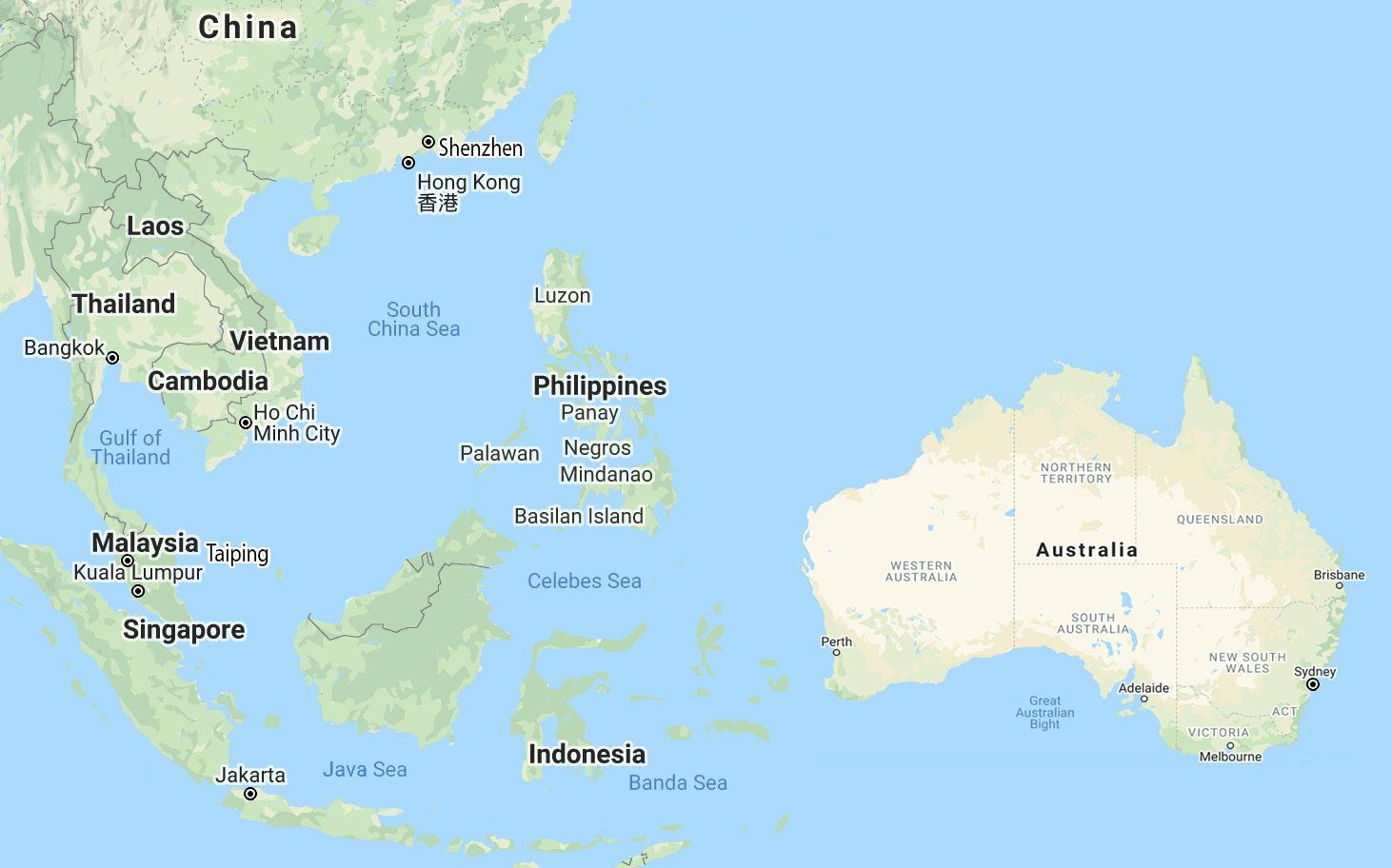









P u b l i c a t i o n 0 7Y e a r 2 0 2 3 25

An organic kid’s meal with Alce Nero™ pasta and basil tomato sauce.

About our Report
This is our seventh sustainability report. The report covers our environmental, social and governance performance for the year 2023.
Since 2021, our ESG reports have been produced per calendar year, and our aim is to publish them within the frst three months of the following year.
D e n i s A s i a P a c i f c P t e L t dE . S . G . R e p o r t 28
An ESG committee at the highest level of management
We have constituted an Environment, Social and Governance committee (ESG committee) at the highest level of management. The committee is chaired by Mr. Daniel Denis, Maison Denis’s Vice Chairman. Mr. Nicolas Denis, Maison Denis’s Chairman, and Mr. Fabien Reyjal, CEO, are the vice-chairmen of the committee. This demonstrates the high level of commitment to the durability and sustainability of the business model by the family owning the companies since 1862.
The Group Marketing Director, Mr. Hervé Simon, acts as the coordinator of the ESG committee.
The ESG committee also includes the Group Procurement & Supply Chain Director, Mr. Jean-Philippe Lamy, the Industrial Operations Director, Mr. Jimmy Yeung, the Group Quality Director, Mr. Stéphane Stanislas, the Group R&D Director, Mrs. Natalie Yap, the Group Compliance Coordinator, Mr. Chong Teck Pin, the Senior Digital Manager, Mr. Guillaume Virantin, the ESG Manager, Mr. Pablo Merino, the Regional Human Resources Manager, Mrs. Serena Lee, the Group Strategy & Process Manager, Ms. Veronica Tung and the Group Senior Finance Manager, Mrs. Kerina Kwek.
The ESG committee, assisted when needed by external experts, reviews and determines the context, scope, boundary and prioritization of the ESG projects.
P u b l i c a t i o n 0 7Y e a r 2 0 2 3 29
The ESG committee meets every three months. It decides on the ESG projects, it designates the senior director or manager in charge of each project, sets the key indicators and it monitors progress.
D e n i s A s i a P a c i f c P t e L t dE . S . G . R e p o r t 30
Problem-solving strategy
Maison Denis has a 161-year history. It already had strong, established values before joining United Nation Global Compact, Singapore Chapter. Although the company is a medium sized company with international coverage, it had limited scope in terms of management resources which could be devoted to sustainability.
It was therefore sensible and logical to adopt a problem-solving strategy; this consists of identifying the company’s weaknesses with reference to the 10 Principles and working on ad hoc solutions in order to keep what is good, to correct what is found to be wrong and to amend what could be improved.
The company created an ESG committee (pages 29-30). The committee defnes an ESG action plan with three levels of actions: 3 long term strategic commitments, a set of 10 coordinated actions for the coming years, and a focus on 5 Sustainable Development Goals. (Refer to Chapter «Our ESG plan» (pages 49-55).
P u b l i c a t i o n 0 7Y e a r 2 0 2 3 31
Materiality assessment
ESG project prioritization is not done with a matrix system or a ranking. Denis Asia Pacifc Pte Ltd is a medium sized company with a collaborative work process and a flat hierarchy. Therefore, the management is well connected with the wider organization, with a deep knowledge of the materiality of the priorities.
These priorities are defned, listed, reviewed and upgraded (when possible) every year. Each specifc action is under the responsibility of the relevant director and member of the ESG committee, with responsibility for the implementation within the defned timeframe.
This organization has proven itself to be particularly efficient for the frst six ESG action plans.
Nevertheless, as best practice and standards evolve, our aim is to establish a prioritisation of ESG topics within a two year timeframe based on a double materiality assessment.
D e n i s A s i a P a c i f c P t e L t dE . S . G . R e p o r t 32
Accuracy of data
We rely on our internal procedures to verify the accuracy of data and information provided in this report.
As we are not a public listed company, the ESG committee freely decides the context, scope and boundary of the company ESG report, but any information in the ESG report is shared with accurate, relevant data in full transparency and honesty.
If a project fails to reach its key indicator at the time of the ESG report, the provisional data will be provided with an explanation of the difficulties encountered in the completion of the task.
P u b l i c a t i o n 0 7Y e a r 2 0 2 3 33
Availability of the report
The ESG report is to be published within 3 months after the closing of the data collection period.
The ESG report is available to anybody without limitation.
For a wider reach, our ESG website uses Google neural translation which allows for the report to be made available in 10 languages on the website MaisonDenisESG.com.
As automatic translation may come with errors, it is important to note that legally the only valid version is the English text.
For inclusion purposes, the English version has been equipped since 2022 with an audio format for visually impaired persons.
For sustainability reasons, the ESG report is available only in digital format. It can be downloaded in pdf from most of our companies’ websites, including “Denis.com” and “MaisonDenisESG.com”.
It is also available for consultation and download on: https://issuu.com/denisbrands.
As a member of United Nations Global Compact, Singapore Chapter, the ESG report is also published as a Communication on Progress (CoP) on the UN Global Compact website: www.unglobalcompact.org
D e n i s A s i a P a c i f c P t e L t dE . S . G . R e p o r t 34
The ESG committee considers it a duty to answer any question which is relevant and not frivolous about our ESG report, but it will entertain only written questions addressed by email (ESG@denis.com) or by post to:
ESG committee
Denis Asia Pacifc Pte Ltd
Maison Denis Building 21 Tagore Lane Singapore 787479
P u b l i c a t i o n 0 7Y e a r 2 0 2 3 35 Feedback & contact
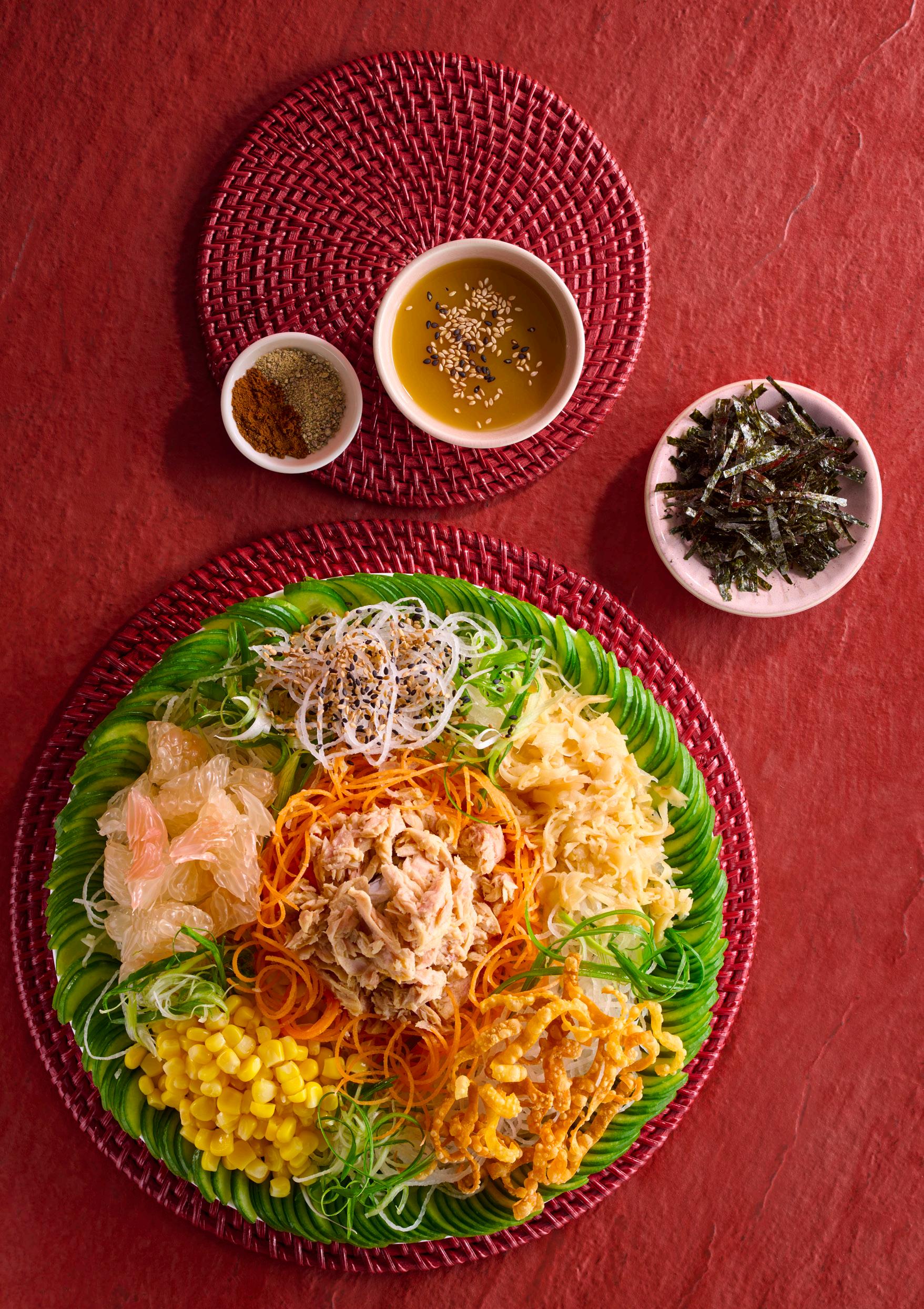
Tuna Yee Sang to celebrate the Lunar New Year with family and friends.
P u b l i c a t i o n 0 7Y e a r 2 0 2 3 37
Our ESG Strategy and Results
Scorecard
environmental data 2018 - 2023 ESG SCORECARD
D e n i s A s i a P a c i f c P t e L t dE . S . G . R e p o r t 38 ESG
2018 2019 20201 2021 2022 2023 Greenhouse Gas emissions Scope 1 (tCO2e)* * * 6,451 6,653 7,878 7,732 Greenhouse Gas emissions Scope 2 (tCO2e)* * * 5,467 5,314 5,750 5,404 Grid Electricity consumption (MWh) 9,337 8,599 8,912 8,827 9,542 9,127 Solar electricity generation (MWh) 696 1,811 1,771 1,726 1,713 1,845 Natural gas consumption (mmBtu) 68,596 70,011 80,212 80,249 93,947 87,171 Coal (lignite & bituminous) consumption (tons) 1,033 998 802 712 1,026 880 Water consumption (m3) 385,625 409,270 450,659 465,487 538,691 476,586 Water discharged after treatment (m3) 284,721 295,586 347,844 359,887 414,446 364,830 Normal waste to recycling/reusing (tons) 2,886 2,791 4,119 4,639 5,472 5,426 Normal waste to landfll (tons) 434 452 388 334 319 321 Percentage of waste Recycled, Reused or Valorized 87% 86% 91% 93% 94% 94% Hazardous Waste generation (tons) 1.6 2.0 2.0 1.5 1.6 2.0 Paper consumption (tons) 10.4 10.1 8.9 6.6 6.6 5.7 Packaging materials used (tons) 6,553 6,556 7,848 6,728 7,569 6,821 Percentage of recyclable primary packaging (in weight) 99.7% 99.7% 99.7% 99.8%
social data 2018 - 2023
ESG SCORECARD
* Historical data can change following the availability and update of emissions factors. Refer to the figure in previous ESG reports, calculated on energy usages only.
1 From 2020, addition of China in the scope.
2 Excluding probation period and fixed-term contract.
P u b l i c a t i o n 0 7Y e a r 2 0 2 3 39
2018 2019 20201 2021 2022 2023 Employees 1,645 1,668 1,656 1,653 1,844 1,791 Percentage of female employees 67% 68% 67% 64% 66% 64% Employee turnover rate (permanent2 staff) 9% 10% 9% 14% 9% 11% Average training hours per employee 12.9 12.3 9.4 6.3 11.8 13.5 Medical leave days 11,609 11,682 10,639 11,369 14,417 13,753 Occupational accidents 34 29 34 29 21 24 Injury days from occupational accidents 697 408 189 276 321 186 Road Accidents (commuting) 25 28 22 18 12 23 Injury days from road accidents 787 842 428 760 675 636 Fatality from road accidents 0 1 0 1 1 0
Summary of ESG awards
SEAL Awards 2023
The SEAL (Sustainability, Environmental Achievement & Leadership) Awards is an awards-driven environmental advocacy organization. Their core beliefs maintain that our environmental progress requires true leadership, leadership deserves recognition, and recognition is a form of accountability.
In 2023, DAP won the SEAL Sustainable Product Award which honors innovative and impactful products that are “purpose-built” for a sustainable future.
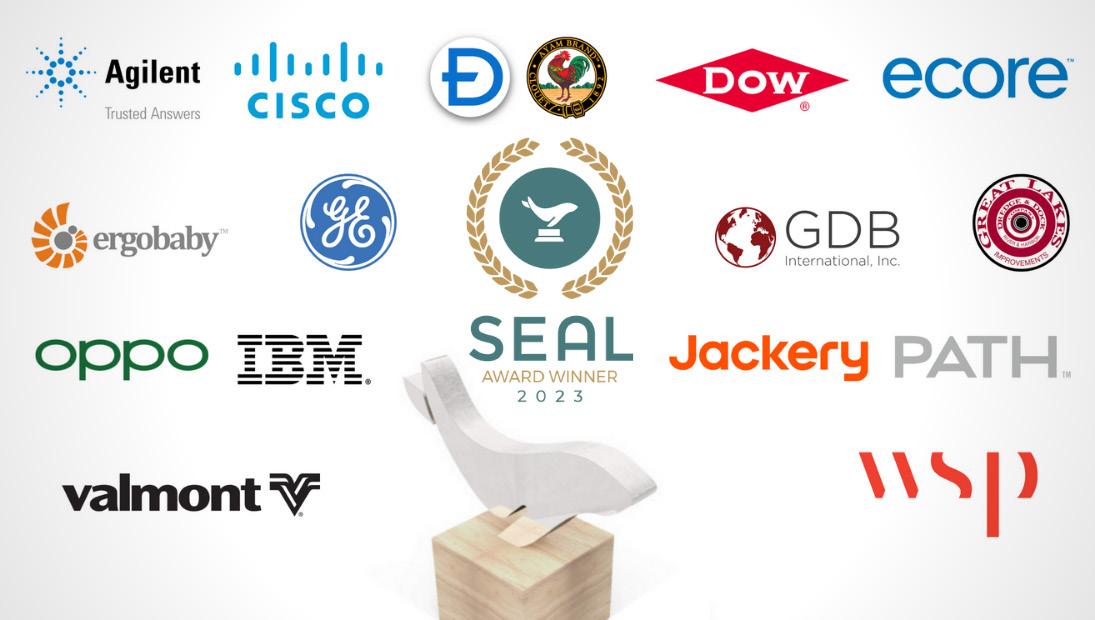
D e n i s A s i a P a c i f c P t e L t dE . S . G . R e p o r t 40
NTUC FairPrice Sustainable Award 2024
NTUC FairPrice Co-operative Ltd leads the social mission of moderating the cost of living in Singapore. Founded by the labour movement in 1973, the company is today Singapore’s largest retailer, comprising 230 outlets, including FairPrice supermarkets, FairPrice Finest, FairPrice Xtra, FairPrice Xpress, and Cheers convenience stores.
In 2024 NUTC FairPrice added a new award for sustainability to the existing various excellence awards that annually acknowledge their best suppliers for the previous year. Our distribution company A.Clouet (Singapore) Pte Ltd received this award for Ayam Brand; this illustrates the relevance and effectiveness of our ESG policy in South East Asia. We share this frst sustainability award with global brands such as Coca-Cola and CP-Foods.
Other awards participation
In 2023, DAP also participated in other awards, to compete with our peers and more importantly, share our ESG actions:
• The ESG Investing Awards assesses and evaluates top-performing companies engaged in various aspects of ESG investing worldwide. Although DAP was shortlisted as a fnalist for the Best Company under the ESG & Sustainability Award, it did not secure the award and did not receive any feedback from the judges.
P u b l i c a t i o n 0 7Y e a r 2 0 2 3 41
• The Asia Sustainability Reporting Award recognizes and celebrates exceptional corporate reporting, disclosure, and transparency practices. Despite DAP’s participation in multiple categories, it did not emerge as a winner and did not receive feedback from the judges.
• DAP also took part in the Sustainability Excellence Award at the World Sustainability Leaders but did not clinch victory. Feedback received from the judges highlighted commendable progress in gender equality, while emphasizing the need for more context on the business’s negative impact on the planet and people. Furthermore, improvements are recommended for the overall targets and strategies. Acknowledging this feedback will be instrumental in enhancing our ESG strategy moving forward.
In previous years, we won several other awards that we are still proud to mention today:
• ESG investing – Finalist of best sustainability reporting: consumer goods, 2022
• Sustainable Business Awards (SBA) Singapore – Sustainability Strategy Award 2020/21 & Signifcant Achievement for Energy Management Award 2020/21
• SEAL Sustainable Product Award – Environmental Initiative Award 2021
D e n i s A s i a P a c i f c P t e L t dE . S . G . R e p o r t 42
• Asia Corporate Excellence & Sustainability Awards (ACES) Top Green Company in Asia 2020
• Singapore Packaging Agreement (SPA) Merit Award 2019
Participation in future Awards
In the coming year we plan to take part in additional competitions. Participating in awards not only allows us to measure our performance against industry peers but also enables us to assess and draw inspiration from their practices. Through this experience, we aim to derive valuable insights to further enhance our sustainable initiatives, hoping to motivate and influence others on our journey. Recognizing our achievements through awards serves as a signifcant incentive for our employees, fuelling the motivation to persist in our endeavours.
P u b l i c a t i o n 0 7Y e a r 2 0 2 3 43
United Nations Global Compact
Denis Asia Pacific Pte Ltd has been a member of the United Nations Global Compact (UNGC), Network Singapore, since January 1st 2016.
A reliable company’s value system and a principled approach to doing business.
Corporate sustainability starts with a company’s value system and a principled approach to doing business. This means operating in ways that, as a minimum, meet fundamental responsibilities in the areas of human rights, labour, the environment and anti-corruption. Responsible businesses enact the same values and principles wherever they have a presence, and know that good practices in one area do not offset harm in another. By incorporating the Ten Principles of the UN Global Compact into strategies, policies and procedures, and establishing a culture of integrity, companies are not only upholding their basic responsibilities to people and planet, but also setting the stage for long-term sustainable development and success.
The 10 principles
Denis Asia Pacific Pte Ltd has therefore pledged to incorporate the 10 Principles of United Nation Global Compact in its company governance and to live by these. They are divided into four main topics:
D e n i s A s i a P a c i f c P t e L t dE . S . G . R e p o r t 44
Human Rights
Principle 1: Businesses should support and respect the protection of internationally proclaimed human rights; and
Principle 2: make sure that they are not complicit in human rights abuses.
Labour
Principle 3: Businesses should uphold the freedom of association and the effective recognition of the right to collective bargaining;
Principle 4: the elimination of all forms of forced and compulsory labour;
Principle 5: the effective abolition of child labour; and
Principle 6: the elimination of discrimination in respect of employment and occupation.
Environment
Principle 7: Businesses should support a precautionary approach to environmental challenges;
Principle 8: undertake initiatives to promote greater environmental responsibility; and
Principle 9: encourage the development and diffusion of environmentally friendly technologies.
Anti-Corruption
Principle 10: Businesses should work against corruption in all its forms, including extortion and bribery.
P u b l i c a t i o n 0 7Y e a r 2 0 2 3 45
There has been a particular focus on Principle 10 since 2020 with an emphatic tone from the top on anti-corruption. We have since 2022 run a programme of anti-corruption e-training, which is mandatory for all office staff. The e-training is validated by a test and an e-certifcate given on completion.
The following specifcally applies to our companies:
Our companies have a zero-tolerance policy toward infringement of human rights, forced labour, unlawful labour practice, unlawful child labour, and corruption.
Our companies are forbidden to work with business partners who would infringe human rights. This includes all forms of modern slavery, such as, but not limited to, people trafficking, slavery, servitude, forced marriage, forced labour, debt bondage, deceptive recruiting for labour services, and the worst forms of child labour.
Our companies are forbidden to work with any business partners convicted or reasonably suspected of practising corruption.
Our companies are forbidden to work with any business partners convicted for illegally polluting or reasonably suspected of illegally polluting.
Our business partners and suppliers should sign our Supplier Code of Conduct or provide us with their own Code of Conduct if it is more stringent than ours (refer to pages 96-97)
D e n i s A s i a P a c i f c P t e L t dE . S . G . R e p o r t 46
This is implemented and monitored by several departments within Head Office:
• The Supply Chain department, under the responsibility of the Procurement and Supply Director, makes sure that the Supplier Code of Conduct is signed by all relevant business partners as defned on pages 96-97. In 2024, this department will receive awareness training in modern slavery.
• The Quality Assurance department, under the responsibility of the Group Quality Director, makes sure that the above principles are checked as far as possible when auditing suppliers.
• The HR HQ manager makes sure that all companies have implemented the proper policies and that the staff handbook contains all the necessary information pertaining to these principles within the framework of local regulations.
• The ESG committee (pages 29-30) ensures that the principles are well respected and has the power to ban a business partner.
• The Ethics committee (pages 155-161) makes sure that all complaints are properly reported, examined, and shared with the highest levels of management. The Ethics Committee actively monitors on the anonymous whistle-blower website that is public and open to everybody.
Progress Reporting
Denis Asia Pacifc has pledged to publish a yearly ESG report to openly monitor the company’s progress.
P u b l i c a t i o n 0 7Y e a r 2 0 2 3 47
Denis Asia Pacifc has also pledged to complete the annual UNGC Communication on Progress.
The Communication on Progress (CoP) is the UNGC’s annual disclosure mechanism and platform for participants to report their progress toward the Ten Principles and the Sustainable Development Goals (SDGs). The enhanced CoP, which launched in 2023, provides companies with a standardized and comprehensive way to measure, demonstrate, and improve their sustainability performance. The enhanced CoP is aligned with reporting frameworks, with questions related to Governance, Human Rights, Labour, Environment and Anti-Corruption.
Due to some technical issues in the reporting process and the online platform, the UNGC decided to make the submission of CoP in 2023 voluntary only.
As part of our ongoing support to UNGC, we decided to submit the digital questionnaire, even though it was not compulsory in 2023. It is a good exercise for us to compare and align ourselves with best ESG practice.
The new CoP platform effectively removes the requirement on us to upload our report yearly to U.N. Global Compact’s website as proof of our commitment and progress. Nevertheless, we will continue to make our yearly ESG report freely available (refer to page 34).
D e n i s A s i a P a c i f c P t e L t dE . S . G . R e p o r t 48
Since 2016, our active and successful ESG strategy has resulted in a signifcant improvement in our understanding of our commitments and vision. For a better acceptance and appropriation of our ESG strategy by all our stakeholders and especially our staff, we wish to remain clear, pragmatic, specifc and efficient.
Our strategy is now defned in three levels
- 3 long term goals
- 10 short and medium term pledges
- 5 Sustainable Development Goals
The 3 long term strategic goals
The 3 milestones defned by our shareholders give a clear idea of what the Group seeks to achieve.
2040: Global Carbon Neutrality
DAP has an ambitious commitment to contribute to carbon neutrality in our activities by 2030, extending to the entire value chain by 2040.
As per the Paris Agreement, we state today that we will participate in the global effort to achieve carbon neutrality by the middle of the century.
P u b l i c a t i o n 0 7Y e a r 2 0 2 3 49 Our
ESG plan
To reach this objective:
- we will reduce our CO2 emissions of fossil fuel origin;
- we will help to reduce the CO2 emissions of other partners in our value chain;
- and we will contribute to the increase in global removal, by participating in the development of carbon sinks.
As we progress in our scope 3 knowledge, we are aware that our 2040 target is ambitious and will be difficult to achieve with today’s conditions, when a lot of companies see a horizon of 2050 and many others have no horizon at all.
However, we anticipate that decarbonization should accelerate, driven by raising awareness, regulatory initiatives, collaborative efforts, emerging economic models and scientifc progress. Although establishing a clear trajectory may pose a challenge at present, we believe that everyone, doing their part, will contribute to making this transition achievable.
2030: Green Building certification.
Buildings have extensive direct and indirect impacts on the environment. During their construction, occupancy, renovation, repurposing and demolition, buildings use energy, water, and raw materials, generate waste, and emit potentially harmful atmospheric emissions. These facts have prompted the creation of Green Building standards, certifcation, and rating systems aimed at mitigating the
D e n i s A s i a P a c i f c P t e L t dE . S . G . R e p o r t 50
impact of buildings on the natural environment through sustainable design.
Since our frst ESG Report, we have pledged that all buildings and facilities belonging to DAP will achieve Green Building certifcation by 2030.
We have already made considerable progress towards this goal, certifying 38 % of our existing buildings.
2030: Full packaging recyclability.
We have specifcally identifed the recyclability of packaging in our activities as one of our main ambitions to fully contribute to a circular economy; We therefore now pledge to have all our packaging recyclable by 2030. This challenging objective calls for action. We have classifed all our packaging and identifed some materials which are harder to recycle, such as pouches. We are experiencing challenges in developing solutions for retortable packaging specifcally. We are therefore exploring alternative solutions, mostly from mono-materials or greener materials. This recyclability commitment is enhanced by ongoing improvements to save on the quantity of material packaging necessary to safely protect food products.
P u b l i c a t i o n 0 7Y e a r 2 0 2 3 51
The 10 short and medium term pledges
We strive to continuously improve our processes and set ambitious new targets. The new report includes the continuation of existing and new pledges. Classifed by category, our 10 pledges are:
Environment:
(1) Having successfully calculated our Greenhouse Gas (GHG) emissions Scope 1 and Scope 2, in 2023 we started calculating for 2022 all other indirect emissions that occur in our company’s value chain: scope 3. Refer to pages 61-66 for more information on this topic.
(2) We will continue with Life-Cycle Assessments of our products to identify and reduce, when possible, the main contributors to their environmental impact. Refer to pages 110-111 for more information on this topic.
(3) We will continue to reduce the amount of paper we use. Refer to pages 80-81 for more information on this topic.
(4) We will continue to improve the sustainability of our supply chain. Refer to pages 96-109 for more information on this topic.
(5) We will continue to increase consumer confdence by constantly
D e n i s A s i a P a c i f c P t e L t dE . S . G . R e p o r t 52
improving our products and making processes safer such as through the use of BPA-free linings, X-Ray, heavy-metal controls, radioactivity controls etc. Refer to pages 136-141 for more information on this topic.
Social:
(6) We will continue to set and improve KPIs for our employees, with a specifc focus on gender equity. Refer to pages 115-121 for more information on this topic.
(7) We will continue to take action to improve the safety and wellbeing of our staff, especially with the start of the retroftting of Mafpro’s factories. Refer to pages 97-98 for more information on this topic.
(8) We will continue our efforts to engage our staff in ESG as part of their daily working lives and have them participate and contribute to ESG initiatives. Refer to pages 74-76, 125-127, 130-137, 142-149 for more information on this topic.
Governance:
(9) We will continue the implementation of our action plan to emphasize awareness and best practice amongst all employees in the fght against corruption and bribery. Refer to pages 160161 for more information on this topic.
P u b l i c a t i o n 0 7Y e a r 2 0 2 3 53
(10) We will continue updating and upgrading our governance policies. Refer to pages 159-161 for more information on this topic.
The 5 Sustainable Development Goals (SDG)
In 2020, the United Nations complemented the 10 principles by the implementation of 17 sustainable development goals.
DAP selected 5 goals to be incorporated into its company vision. These 5 goals meet specifc ESG strategic commitments of the Group. Their clear and recognizable logos will help us to communicate our ESG strategy to all our stakeholders.
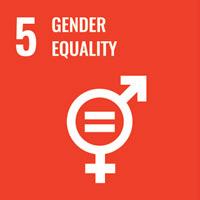
Goal 5: Achieve gender equality and empower all women and girls
Target 5.5: Ensure women’s full and effective participation and equal opportunities for leadership at all levels of decision making in political, economic and public life.
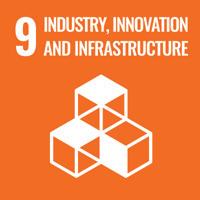
Goal 9: Build resilient infrastructure, promote sustainable industrialization and foster innovation
Target 9.4: upgrade infrastructure and retroft industries to make them sustainable, with increased resource-use efficiency and greater adoption of clean and environmentally sound technologies and industrial processes, with all countries taking action in accordance with their respective capabilities.
D e n i s A s i a P a c i f c P t e L t dE . S . G . R e p o r t 54
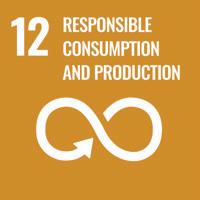
Goal 12: Ensure sustainable consumption and production patterns
Target 12.6: Encourage companies, especially large and transnational companies, to adopt sustainable practices and to integrate sustainability information into their reporting cycle.
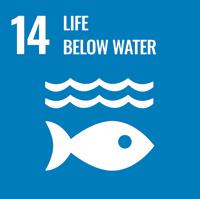
Goal 14: Conserve and sustainably use the oceans, seas and marine resources
Target 14.4: effectively regulate harvesting and end overfshing, illegal, unreported and unregulated fshing and destructive fshing practices. Implement science-based management plans, in order to restore fsh stocks in the shortest time feasible, at least to levels that can produce maximum sustainable yield as determined by their biological characteristics.
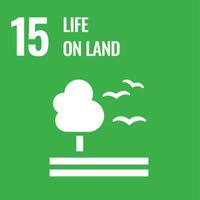
Goal 15: Sustainably manage forests, combat desertification, halt and reverse land degradation, halt biodiversity loss
Target 15.2: promote the implementation of sustainable management of all types of forests, halt deforestation, restore degraded forests and substantially increase afforestation and reforestation globally.
P u b l i c a t i o n 0 7Y e a r 2 0 2 3 55
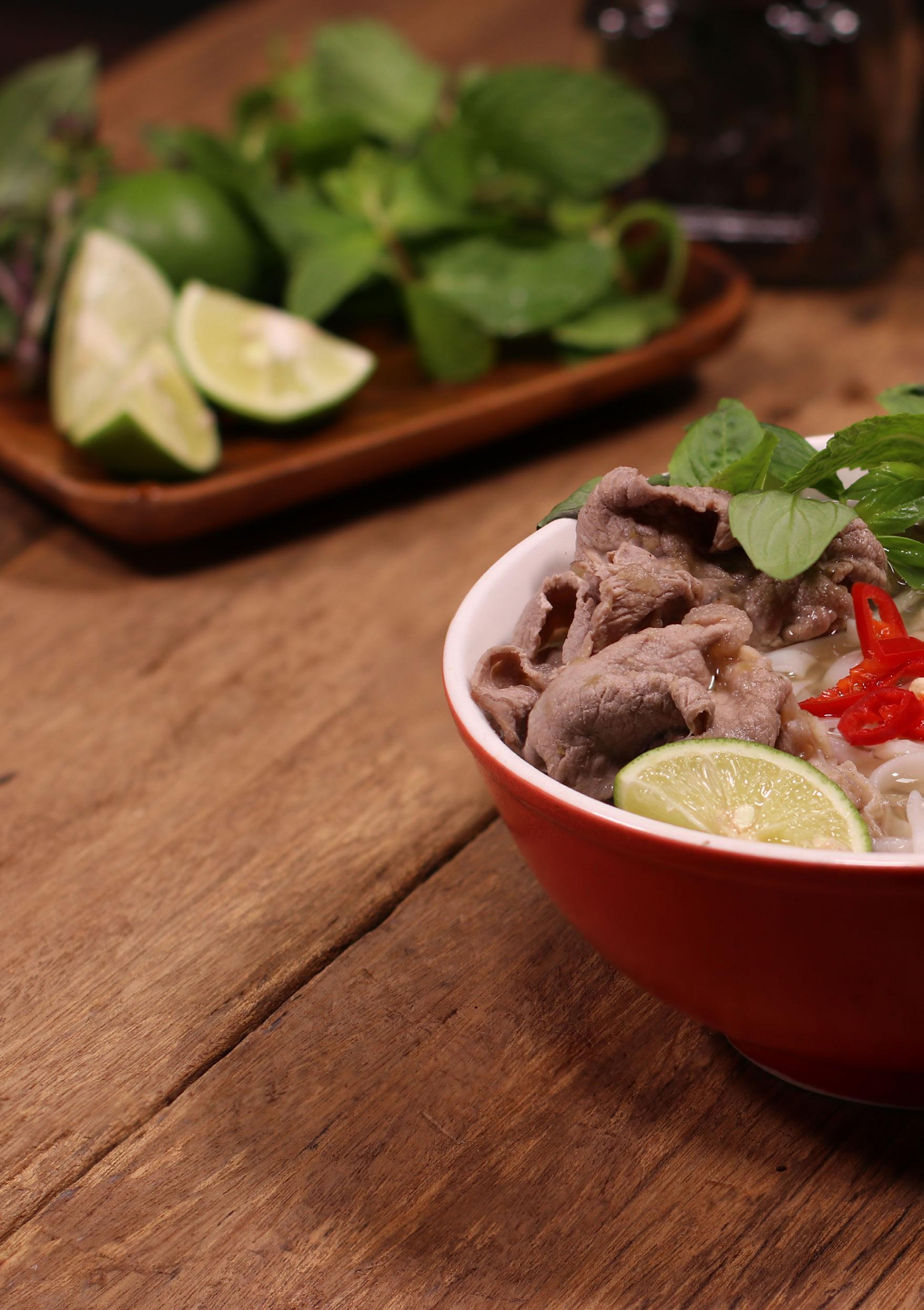
Vietnamese Pho soup, with a broth adjusted with Ayam™ soya sauce
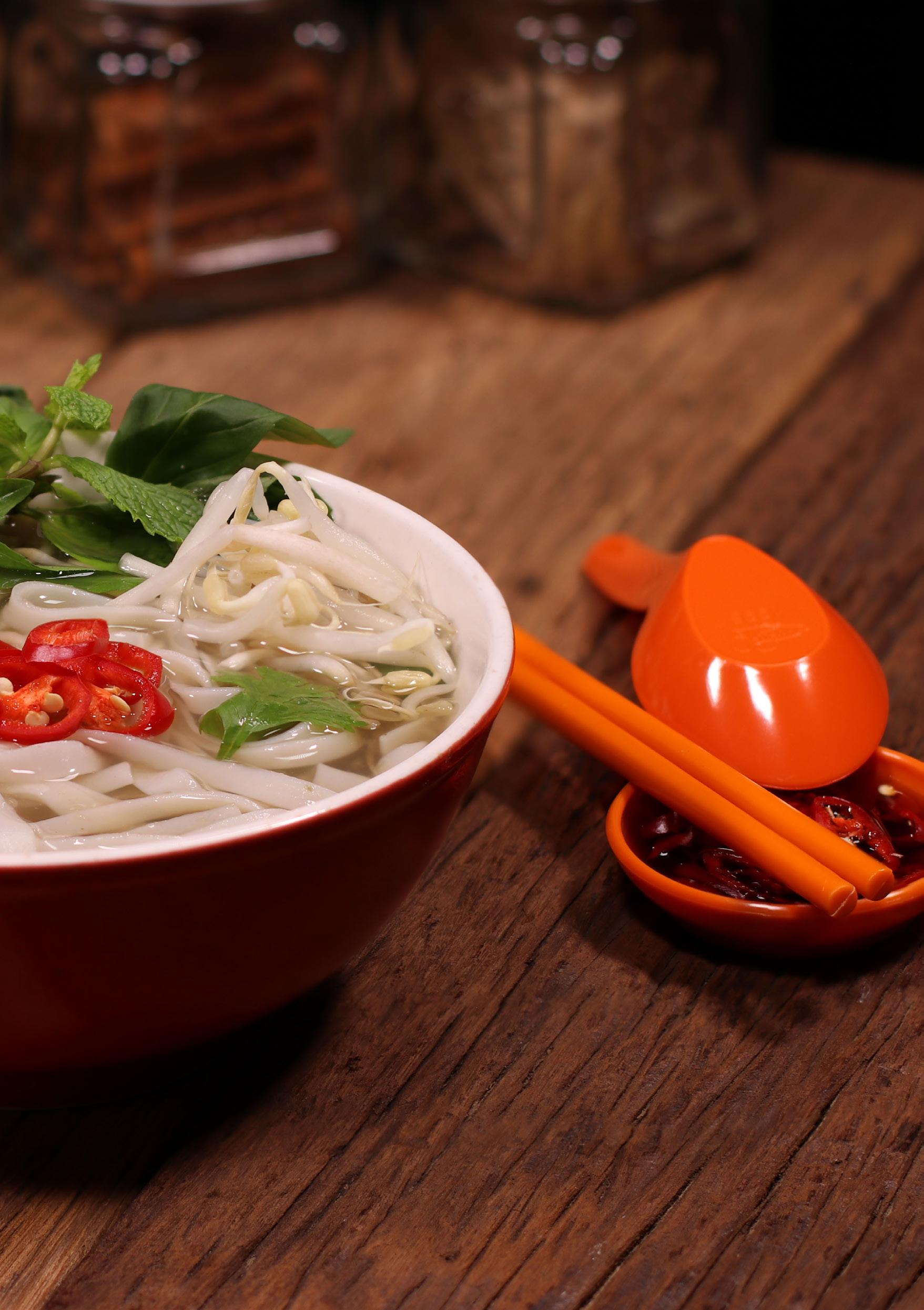
D e n i s A s i a P a c i f c P t e L t dE . S . G . R e p o r t 58
Environment
Climate Change Actions
Carbon Neutrality
DAP has an ambitious commitment to become carbon neutral in its activities by 2030 (Scope 1 & 2), and, as a second step, in its entire value chain by 2040 (Scope 3).
The Paris Agreement was a call for action for many companies, and our pledge of carbon neutrality is part of the global effort required to limit climate change.
We are committed to mobilising all necessary resources towards this objective. We will share our progress annually in the ESG report.
We continue to follow the ongoing discussion surrounding the terminology used in environmental commitments, specifcally the distinction between carbon neutrality and net zero emissions. Our commitment to sustainability predates the current debate and was made during the early stages of the discourse, without the beneft of today’s considerations. It is essential to emphasize our dedication to a constructive approach by outlining our neutrality process:
- Reduction: we proactively focus on minimizing both direct and indirect emissions within our operations (Scope 1 and 2).
P u b l i c a t i o n 0 7Y e a r 2 0 2 3 59
- Collaboration: We will collaborate with our stakeholders, encouraging and influencing them to join us on this sustainability journey. When our capacity to influence may be limited, we will continue to approach decision-making with full transparency and honesty.
- Compensation: Recognizing the challenge of completely eliminating emissions, we commit to offsetting our unavoidable carbon footprint. This involves actively participating in global initiatives that contribute to the reduction, removal, or prevention of CO2 and other greenhouse gas emissions.
By taking these steps, we aim not only to fulfl our environmental responsibilities but also to contribute positively to the global efforts addressing climate change. This commitment reflects our belief in the importance of proactive, transparent, and collaborative actions for a sustainable future.
D e n i s A s i a P a c i f c P t e L t dE . S . G . R e p o r t 60
Greenhouse Gas Emissions
The Greenhouse Gas (GHG) Protocol Corporate Standard classifes a company’s GHG emissions into three ‘Scopes’.
- Scope 1 emissions are direct emissions from owned or controlled sources.
- Scope 2 emissions are indirect emissions from the generation of purchased energy.
- Scope 3 emissions are all indirect emissions (not included in scope 2) that occur in the value chain of the reporting company, including both upstream and downstream emissions.
2022 Scope 3
By the end of 2023 and in line with our plan, we were able to share a comprehensive overview of our greenhouse gas (GHG) emissions for the year 2022; this covers all three scopes as defned by the GHG Protocol - Scope 1, 2 and 3.
While we have diligently measured and mitigated our Direct (Scope 1) and Indirect (Scope 2) emissions for several years, we recognized the need to address Scope 3 emissions, which often constitute a signifcant portion of our overall carbon footprint. Taking a proactive stance toward sustainability, we voluntarily collaborated with Greenly to conduct a thorough carbon assessment, going beyond regulatory obligations.
P u b l i c a t i o n 0 7Y e a r 2 0 2 3 61
Our activities are currently emitting a total of 100 ktCO2, with Scope 3 accounting for 86% of this total.

While our expectations were generally aligned with the results provided by Greenly for Scope 1 and 2 emissions, delving into Scope 3 emissions opened a new level of insight and understanding.
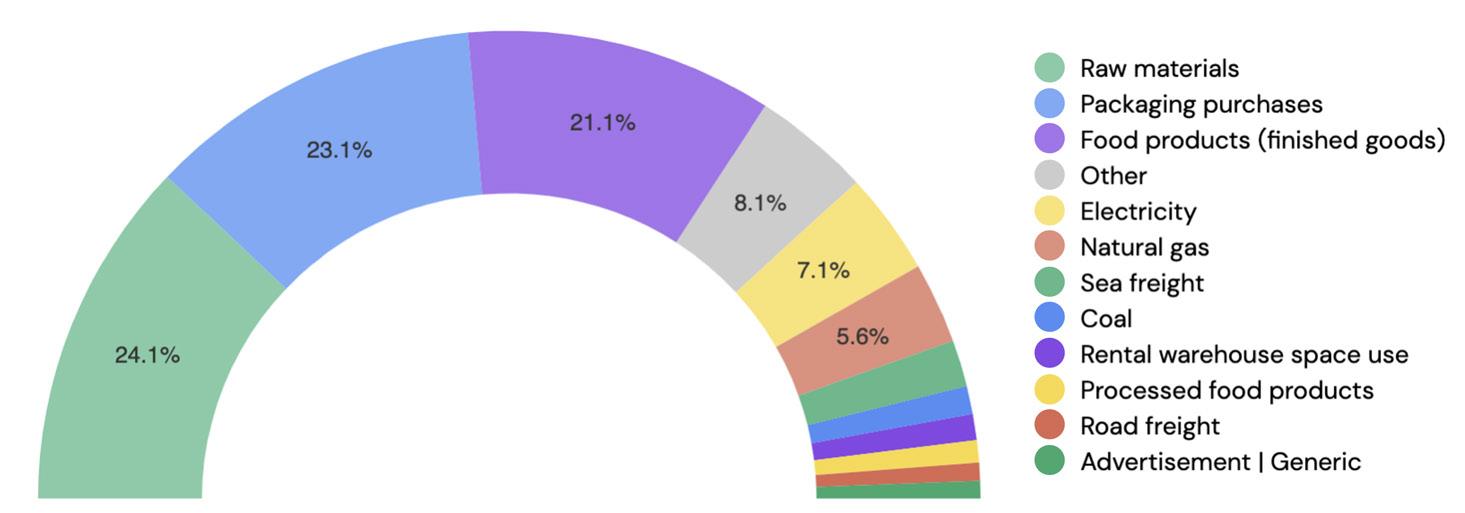
D e n i s A s i a P a c i f c P t e L t dE . S . G . R e p o r t 62
Looking at the breakdown by categories,«[Food] Raw Material» and «Food Products» contribute to nearly half of our emissions, as would be expected for a food industry player.
Notably, product purchases, mainly consisting of food packaging, make up almost a quarter of our emissions. While not entirely unexpected, this served as a reminder of the need to continually improve our packaging practices. We are actively engaged in efforts to reduce packaging weight, enhance recyclability, and incorporate more recycled materials while keeping as the utmost priority the highest standard of food preservation and safety.
We did not expect the relatively low impact of transportation on our overall emissions profle. Given our status as an international company with products distributed across various countries, we anticipated that transportation would constitute a more signifcant portion of our carbon footprint. However, our reliance on long shelflife products, such as canned and sterilized pouches transported mainly by sea freight mitigated this impact. This underscores the importance of considering the entire product lifecycle in assessing emissions.
We approached the fndings with a positive outlook, viewing them as validation of our ongoing efforts towards sustainability. It was gratifying to see that the products we offer inherently possess a low carbon footprint, reflecting our commitment to quality and
P u b l i c a t i o n 0 7Y e a r 2 0 2 3 63
environmental responsibility. This reaffirmed our belief that we are moving in the right direction.
As we now have a comprehensive view of our emissions across all scopes, our focus is on developing a robust long-term roadmap to achieve our sustainability objectives. The insights provided by this study will empower us to take proactive measures to reduce our environmental impact. We are proud of the transparency we maintain regarding our emissions profle and are eager to share our progress with stakeholders through various channels, including our ESG reports.
Testimonial

Testimony extracted from the case study conducted by Greenly (available at https://greenly. earth/en-gb/case-study/maison-denis): What would you say to a company that is hesitant on embarking on this sustainability journey?
Embarking on the sustainability journey may seem daunting, but the first step is crucial: measure your impact. Just as you wouldn’t embark on a weight loss journey without a scale, you can’t effectively reduce greenhouse gas emissions without knowing where they stand. It’s not as daunting as it seems—start small, take it step by step, and remember, it’s possible for everyone to make a difference.
Pablo Merino, ESG Manager, Denis Asia Pacific Pte Ltd
D e n i s A s i a P a c i f c P t e L t dE . S . G . R e p o r t 64
2023 Scope 1 and 2
We have calculated our corporate direct and indirect emissions from Scope 1 and 2:
2023 GHG emissions (tCO2e)
Manufacture Malaysia
Manufacture Vietnam O ces (Asia-Pacific) Total Emissions
SCOPE 1
SCOPE 2
Mobile Combustion Company Vehicles
Stationary Combustion Boilers
TOTAL SCOPE 1
Purchased electricity
TOTAL SCOPE 2
TOTAL (Scope 1 + 2)
9,620 2,595 921
Our Scope 1 and 2 greenhouse gas emissions represent a total of 13,136 tons* of CO2 equivalent in 2023, down by 4% versus 2022. 50% emanated from stationary combustion (specifcally boilers), while 41% derived from the consumption of purchased electricity. The residual portion is distributed as follows: 5% from fugitive emissions (refrigerant gas) and 4% from mobile combustion (transport).
13,136
P u b l i c a t i o n 0 7Y e a r 2 0 2 3 65
Fugitive emissions Refrigerant
226 4,648 5,382 4,238 4,238 6 28 1,958 1,992 603 603 159 199358 563 563 672 453 6,606 7,732 5,404 5,404
Gas507
(Scope 1) Stationary Combustion (Scope 1) Mobile Combustion (Scope 2) Purchased Electricity (Scope 1) Fugitive emissions
Our GHG emission intensity (measured in tCO2e per ton of fnished product) remained steadfast. Providing food to the world is our mission. This is an essential activity, and we continue to do it efficiently, generating (Scope 1 and 2) only 0.53 tCO2e in producing 1 ton of fnished goods. This ratio is a key indicator which demonstrates the improvements made in our factories to achieve more energy efficient processes.
(*Small variations can occur between our previous calculations and the calculation from Greenly (announced above). This is due to the use of different emission factor databases. However, these differences are minimal and do not change the conclusion or big fgures. Both calculations are valid and follow the recommendations of the GHG protocol)
D e n i s A s i a P a c i f c P t e L t dE . S . G . R e p o r t 66
GHG
16,000 14,000 12,000 10,000 8,000 6,000 4,000 2,000 2020 2021 2022 2023
emissions (tCO2e)
Renewable Energy
Unlimited ambitions
From 0% in 2017, our production of solar electricity is now equivalent to 20% of our electricity consumption from the grid and we expect to reach 25% in 2024. We proudly embrace this renewable energy revolution, aligning our operations with our carbon neutrality commitment.
In the fght against climate change, our solar initiative stands as a formidable ally. We anticipate annual savings of approximately 1360 metric tons of carbon dioxide equivalent (tCO2e), contributing substantially to our corporate commitment to decarbonize our production.
To put this achievement in perspective, the emissions savings from our solar project are equivalent to removing over 283 cars from the road each year or preserving nearly 150 acres of forest. These numbers vividly illustrate the scale of our positive environmental impact. This aligns with our corporate goal of achieving carbon neutrality by doing the maximum possible to reduce emissions under our control, namely Scope 2.
P u b l i c a t i o n 0 7Y e a r 2 0 2 3 67
Solar Photovoltaic installation in Vietnam
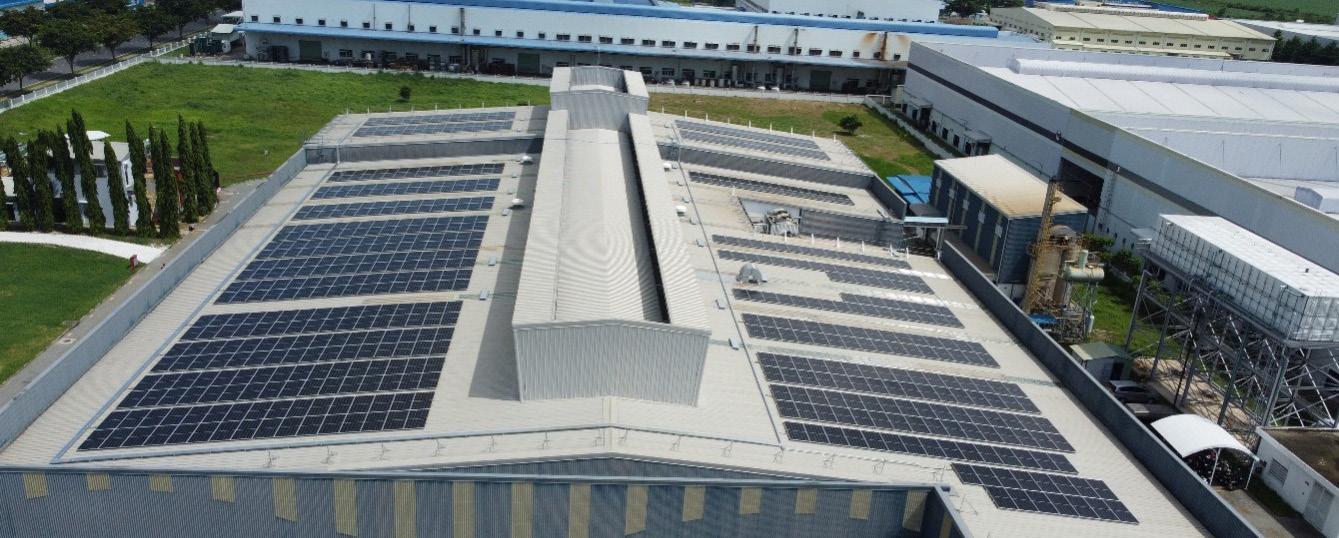
Solar electricity is booming in Vietnam: it accounts for 10 % of electricity production there, more than India (9.5%), the European Union (8.7%), and China (6.5%).
Testimonial

Having worked together across the region, Maison Denis has demonstrated commitment and dedication to responsible business operations.
The successful adoption of solar energy not only contributes to cost savings but also reinforces Maison Denis’s role as a leader in fostering a greener and more sustainable future. The team at ERS Energy is proud and honoured to be part of the journey.
Jacky Hung, Country Operating Director, ERS Energy, Vietnam.
D e n i s A s i a P a c i f c P t e L t dE . S . G . R e p o r t 68
Our manufacturing site named “Denis Great Mekong” (DGM), near Ho Chi Minh City, now boasts 700 solar panels on our building’s roof to harness Vietnam’s abundant sunlight. Every day, these solar panels convert sunlight into up to 1,500 kilowatt-hours (kWh) of clean, renewable electricity. This impressive output represents 40% of the daily electricity needs of our factory and a potential saving of 360 metric tons of carbon dioxide equivalent (tCO2e).
Solar Photovoltaics in Malaysia
Our Vietnam installation followed the success of our solar project in our Malaysian industrial site back in 2018. We equipped 7 of our buildings with a total of 1600 rooftop solar panels that generated around 1,700,000 kWh of electricity in 2023, equivalent to saving 1,000 tons of CO2e every year.
Watch the video of our solar system at this link: Solar System Taiping
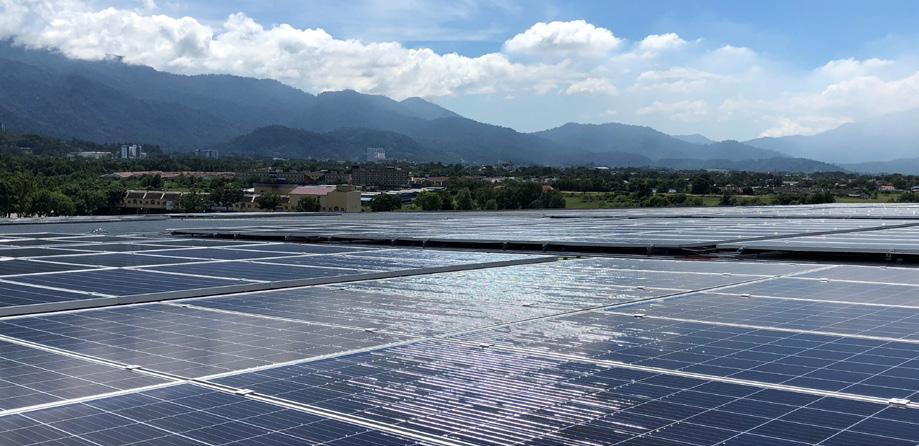
Our Solar Photovoltaics system stands as a testament to our corporate responsibility and commitment to sustainable practices. Beyond the technological aspect, it symbolizes our dedication to operational excellence while prioritizing environmental consciousness.
P u b l i c a t i o n 0 7Y e a r 2 0 2 3 69
Energy Management
The first step in fighting climate change is to reduce our greenhouse gas emissions. To achieve that, we are taking strong initiatives in Energy Management. We are not just working for the present but investing in the future.
The manufacturing phase of our operations, especially steam production, represents the most signifcant source of GHG emissions under our direct control, where electricity and fossil fuels are consumed.
In recent years, we have integrated diverse technologies and implemented a comprehensive approach to reduce electricity consumption and minimize fossil fuel usage for steam production across our manufacturing sites in Malaysia and Vietnam.
Monitoring energy metrics
To start with, since 2018 our main production sites in Malaysia have been equipped with electricity meters. This setup provides us with real-time and comprehensive insights into our sites’ power consumption, allowing us to identify major energy consumers. Through ongoing analyses of the data gathered by these meters
D e n i s A s i a P a c i f c P t e L t dE . S . G . R e p o r t 70
and the Energy Management Information System (EMIS), we actively seek opportunities to enhance our efficiency. Since then, we have implemented regular Energy Management Meetings, to analyze our electricity and natural gas consumption and discuss the ongoing energy projects.
Improving energy efficiency
Over the past few years we have carried out a series of projects focusing on operational optimization, replacing equipment with more efficient models, and conducting audits. These efforts have resulted in annual savings of 776 tCO2e, as explained in our previous ESG Reports.
In Malaysia in 2023 we hired an ESG Engineer, Mr Florian Deram, charged with coordinating our Energy Management plan for our main manufacturing sites in Taiping. This same year, we implemented the following series of actions:
• Optimization of Sterilization Process: We improved our can sterilization process by optimizing the operating time of our retorts. This allowed for a reduction in our steam consumption, leading to around 5 tCO2e saved per year.
• Steam Audit: We implemented regular internal audits to check
P u b l i c a t i o n 0 7Y e a r 2 0 2 3 71
our steam network. This comprehensive initiative involved identifying and rectifying leaks, addressing operational inefficiencies, and exploring potential equipment improvements, all aimed at enhancing energy conservation within our operations. During this audit we also used a thermal camera to examine temperature variations and identify air and steam leaks or insulation defciencies within our Cold Room. This proactive measure ensures optimal product storage conditions while simultaneously minimizing energy wastage.
• In Mafpro, we initiated the monitoring of new indicators to enhance our understanding of steam production processes and natural gas consumption.
• Boiler Efficiency: As a result of the installation of steam flow meters to measure the quantity of steam generated by our boiler, we can now gauge the amount of fuel used to produce a specifc amount of steam. This allows us to track the efficiency of our boiler.
• Boiler Air Ratio: Steam production within our boiler chambers necessitates the presence of air. To ensure optimal performance, we acquired a flue gas analyzer, allowing us to measure and monitor the air ratio every month, an improvement from our previous annual checks. This enhanced monitoring capability enables us to identify any deviations from the optimal air ratio.
D e n i s A s i a P a c i f c P t e L t dE . S . G . R e p o r t 72
In Vietnam, we conducted an Energy Audit of our factory which gave us an overall picture of the remaining opportunities for saving electricity and steam in our processes. This has led to the installation of jacketed insulation for our main steam piping, which will save around 42 tCO2e per year. The other suggestions from the Audit are under study for future implementation.
Horizon 2040
As we set our sights on the horizon of 2024, we are working on additional ways to understand our energy usage: more energy optimization solutions, more efficient equipment, more energy recovery … to ensure successful decarbonisation of our production, with a view to achieving carbon neutrality by 2040.
P u b l i c a t i o n 0 7Y e a r 2 0 2 3 73
Climate Fresk
At Maison Denis, our commitment to Environmental, Social, and Governance (ESG) principles encompasses a holistic approach. Education plays a pivotal role in our pursuit of sustainability, and this chapter delves into our initiative to equip our team with knowledge about Climate Change thanks to Climate Fresk.
Understanding Climate Fresk
Climate Fresk, a French nonproft founded in December 2018, raises awareness about climate change through a collaborative game using 42 cards. Participants create a “Fresk” summarizing the Intergovernmental Panel on Climate Change’s work. By 2023, over a million people have taken part, enhancing their understanding of climate science.
Climate Fresk outcomes:
• Cultivating Awareness: Climate Education Inspires Change
• Driving Collective Action: Empowering Informed Choices
• Inspiring Innovation: Climate Literacy Fuels Solutions
• Creating a Cultural Shift: Embedding Climate Education for Sustainability.
D e n i s A s i a P a c i f c P t e L t dE . S . G . R e p o r t 74
Maison Denis driving change through climate change education
In early 2023, our Top Management embarked on a transformative journey by participating in an inaugural Climate Fresk during our General Assembly. This workshop, attended by 36 key participants, including our Chairmen, CEO and Directors from various departments and companies, marked the beginning of an enlightening chapter for Maison Denis.
The success of this event, coupled with the enthusiastic response from participants, fuelled our commitment to furthering climate education within our organization. As a result, we made a strategic decision to extend this knowledge to our English-speaking employees at our main manufacturing site in Taiping, Malaysia, where a signifcant portion of our workforce is based.
To date, 98 employees at our Taiping sites have actively engaged in Climate Fresk, representing 38% of our English-speaking workforce. Despite this commendable progress, we aspire to achieve full participation among our English speakers by the end of 2024. Recognizing the diversity within our workforce, we are actively working on plans to train facilitators profcient in Malay. This initiative aims to ensure that every member of our organization, regardless of language, has the opportunity to beneft from this valuable knowledge.
P u b l i c a t i o n 0 7Y e a r 2 0 2 3 75
It’s noteworthy that 86% of the participants reported gaining “a lot of new knowledge” through those workshops. Additionally, the positive feedback from participants has translated into a collective commitment to actively reduce their carbon footprint.
To enhance comprehension and inclusivity, we’ve adapted our approach to accommodate varying levels of familiarity with the subject. This includes simplifying the Fresk by fne tuning card content and utilizing concrete examples that resonate with the climate challenges facing Malaysia.
Climate Fresk isn’t just a workshop; it’s a catalyst for change. In fostering climate literacy, we are sowing the seeds for a more sustainable future, guiding our journey towards environmental stewardship.
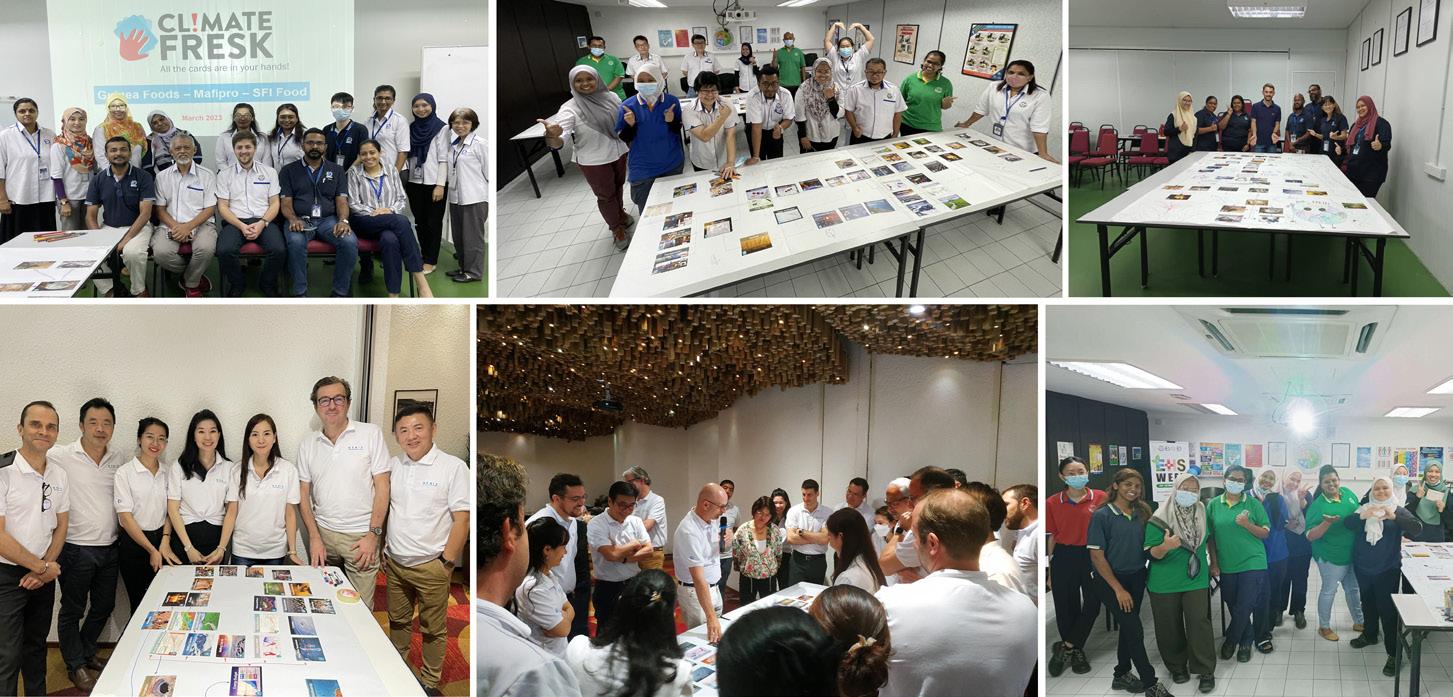
D e n i s A s i a P a c i f c P t e L t dE . S . G . R e p o r t 76
In this chapter, we are focusing on our Resource usage (Water and Paper) and our generation of Waste. Given that resources are limited and precious, we manage them in a way that limits our impact on the environment.
Water
In 2023, DAP consumed 476,586 cubic meters of water. The decreased fgure (- 12% compared to 2022) is mostly linked to the repair of an underground water pipe leaking in Guinea Foods.
600,000
(O: Offices, MV: Manufacturing Vietnam, MM: Manufacturing Malaysia)
P u b l i c a t i o n 0 7Y e a r 2 0 2 3 77 Resources Management
500,000 400,000 300,000 200,000 100,000 2020 2019 2018 Water consumption (m3) 2021 2022 2023 O MV MM
7,000 6,000 5,000 4,000 3,000 2,000 1,000
To ensure that discharged water is fully treated before dispensing it into the environment, every single one of our factories is equipped with a Waste Water Treatment Plant (WWTP). The water discharged consistently complies with national rejection standards.
Waste
In 2023, our manufacturing sites generated 5,747 tons of Normal Waste (packaging, rejected products, WWTP sludge, scrap-metal …), a stable value compared to last year.
94% of this waste is diverted from landfll, going to facilities able to give it a second life by being reused, recycled or valorised.
Waste generation (tons)
D e n i s A s i a P a c i f c P t e L t dE . S . G . R e p o r t 78
2020 2019 2018
2021 2022 2023 MV MM (MV: Manufacturing Vietnam, MM: Manufacturing Malaysia)
Normal
Hazardous Waste (any waste that could have potential threats to public health or the environment without proper handling) represents only 2 tons, which comprises oil, batteries, solvents, paints, chemicals etc. This is monitored, stored and managed by qualifed employees and collected and treated by authorized contractors.
Hazardous Waste generation (tons)
(MV: Manufacturing Vietnam, MM: Manufacturing Malaysia)
The fluctuations in waste generation mainly reflect our incoming materials and our activities. Despite our favouring purchases with fewer packaging materials, this still presents a challenge for many suppliers.
We audit our waste treatment centres regularly to ensure our waste is treated properly; we only work with those treatment centres that fulfll their obligations and demonstrate effective control of their environmental impact.
P u b l i c a t i o n 0 7Y e a r 2 0 2 3 79
7 6 5 4 3 2 1 2020 2019 2018
2021 2022 2023 MV MM
Our audit criteria are straightforward: the best practices in terms of Environment, Health and Safety (EHS) will be rewarded with higher scores. This is how we choose between suppliers. Nonetheless, to avoid neglecting minor entities with a limited grasp of this concept, we also consider and recognize their commitment and progress. We have now audited all our waste collectors and we will continue to do so regularly.
Paper
In 2023, DAP consumed 5,748 kg of Paper, a 13% reduction compared to the previous year. The impact of COVID-19 has accelerated the digitalization of several administrative processes. Since 2020 every company has had to handle work from home and out of necessity, we have had to fnd solutions. Many new ways of working and handling documents were implemented as a consequence. Those practices have continued since staff have returned to office premises, explaining our lower levels of paper consumption.
This reduction marks the achievement of pledge number 4 “to reduce our current usage by 10% in 2022-2023.”
More impressively, in just 6 years we have halved our paper consumption.
D e n i s A s i a P a c i f c P t e L t dE . S . G . R e p o r t 80
12,000 10,000 8,000 6,000 4,000 2,000
(O: Offices, MV: Manufacturing Vietnam, MM: Manufacturing Malaysia)
In addition, we have ensured that all paper purchased comes from sustainable sources, thanks to FSC or PEFC certifcation.
The Forest Stewardship Council (FSC) and the Program for the Endorsement of Forest Certifcation (PEFC) are organizations that certify forest products, like paper and wood, as being sourced in an environmentally friendly, socially responsible and economically viable manner.
P u b l i c a t i o n 0 7Y e a r 2 0 2 3 81
2020 2019 2018
2021 2022 2023 O MV MM
Paper usage (kg)
Better Packaging
2030 Packaging Recyclability Objective
We are endeavouring to achieve our pledge to have all our packaging recyclable by 2030. To date, we have classifed the packaging that we use and singled out those categories of packaging which are hard to recycle, such as the pouches. We are working on a solution using mono-material or other recyclable materials, given the challenge that it must withstand high temperatures under sterilization. We are testing several materials with our suppliers, but none have been able to meet our expectations so far. We have learned that there are no easy solutions to this problem; our dedicated team will nevertheless continue working towards this goal.
Packaging in Singapore
DAP has been a signatory of the Singapore Packaging Agreement since 2018 and won a Merit Award in 2019 for its efforts made in reducing the quantity of packaging material used in its products (refer to pages 42-43, 86-89). The Singapore Packaging Agreement ended in June 2020 and was replaced by the Packaging Partnership Program (PPP). The PPP is a joint capability development program between Singapore NEA and Singapore Manufacturing Federation (SMF), that supports companies with new obligations under the Mandatory Packaging Reporting (MPR) system which started on 1 January 2021. PPP also provides a platform to exchange best practice in sustainable packaging and waste management whilst enabling networking with various industrial groups within SMF.
D e n i s A s i a P a c i f c P t e L t dE . S . G . R e p o r t 82
We successfully submitted our frst packaging report under the Singapore Mandatory Packaging Reporting in March 2023 for the amount of packaging used in 2022. This packaging report covers all specifed packaging used on regulated goods supplied and used in Singapore. We have also developed and submitted our 3R (Reduce, Reuse, Recycle) plans, focusing on :
• Packaging Reduction.
• Use of Recycled Content in Packaging Material.
Under this 3R plan, we completed 2 actions in 2023 and one is still in progress with a completion target in 2025:
Reduced carton weight by adopting lighter board grade (lower grammage – 170 grams per square meter). Adopting lower grammage has multiple benefts, in terms of cost of course, but also in the quantity of natural resources used (less wood, in this case, to produce the paper and carton), and greenhouse gas emissions (less weight resulting in lighter transportation and so reduced fuel consumption). All this, while maintaining the same level of performance to protect our product during transport.
Increased recycled content of our cartons. Similarly to the above, more recycled content means a reduced quantity of virgin kraft being used in the production of the carton. In 2023, 7 types of cartons beneftted from this increased recycled content. The
P u b l i c a t i o n 0 7Y e a r 2 0 2 3 83
maximum that we have reached is a carton made of 95% of recycled materials.
Still on carton optimization, we are working to change our 3-ply layer pad (used inside the carton to divide layers of stacked products) into single ply board. This would signifcantly reduce the packaging weight and therefore also optimise our logistics.
Packaging Reporting and the 3R plan are mandatory and require an annual submission and update of our progress. We will continue to comply with this each year.
Packaging in Australia
The Australian Packaging Covenant (APC) is a national regulatory framework under the National Environment Protection (Used Packaging Materials) Measure 2011 (NEPM) that sets out how governments and businesses across Australia share the responsibility for managing the environmental impacts of packaging.
The Australian Packaging Covenant Organisation (APCO) is tasked with managing the Covenant and leading the delivery of the National Packaging Target 2025:
• 100% reusable, recyclable or compostable packaging.
• 70% of plastic packaging being recycled or composted.
D e n i s A s i a P a c i f c P t e L t dE . S . G . R e p o r t 84
• 50% of average recycled content included in packaging.
• The phase-out of problematic and unnecessary single-use plastics packaging.
Our objective is to contribute to these national targets without compromising the safety and quality of our products. Most of our packaging in Australia is already recyclable. This is in line with our company packaging recyclability objective for 2030, and as mentioned earlier, we are working hard on it. We evaluate ourselves every year in regard to those National Targets, to monitor and share our progress with the APC.
As part of our APC commitment, we are also updating all our packaging to replace the Mobius loop recycling logo with the new ARL (Australian Recycling Label) on all our packaged products for clear disposal instructions. We have managed to update 90% of the labels and aim to reach 100% ARL in 2024.
Packaging in France
DAP successfully introduced the new Triman logo covering all food labels for the French market within the deadline set according to French law. The new Triman logo consists of clear recycling sorting instructions for food packaging. We see it as a signifcant improvement because of its clarity, but also as it unifes sorting instructions nationally; these used to vary by region.
P u b l i c a t i o n 0 7Y e a r 2 0 2 3 85
Packaging improvements
Aside from the Mandatory Reporting and objectives set in Singapore, Australia and France, we also take initiatives in all our markets to continuously improve our packaging.
Paper packaging certified with the highest standards
For some of our paper-based packaging, we now use sustainably sourced paper that carries the most recognized certifcation. Sourcing material with this certifcation guarantees that the paper comes from forests that are responsibly managed with high standards on environmental, social and economic matters.
To make this possible, we have had to source new suppliers; in addition, we have influenced our existing suppliers by demonstrating that this type of certifed supply could bring benefts to them. They have consequently agreed to undertake a certifcation process.
We are proud to have made this change for 3 models of our Club Cans packaging, and we hope to change our entire Club Cans range within 3 years.
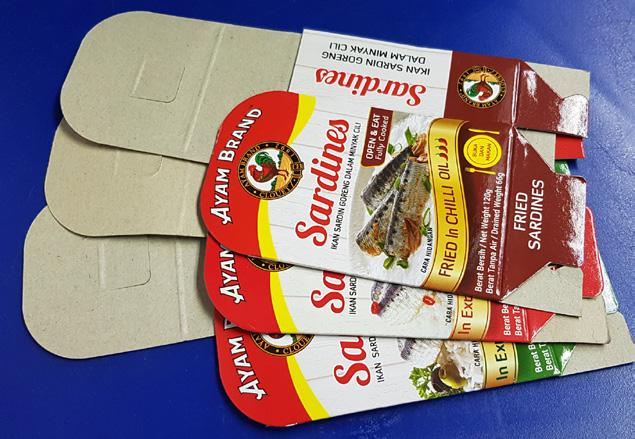
D e n i s A s i a P a c i f c P t e L t dE . S . G . R e p o r t 86
Reduce packaging weight
Our team continue to keep our packaging lean yet functional and safe.
In 2023 we achieved a total reduction of 2.6 tons of paper packaging, by:
• Reducing the carton divider to one piece per carton.
• Removing the carton divider and reducing carton size.
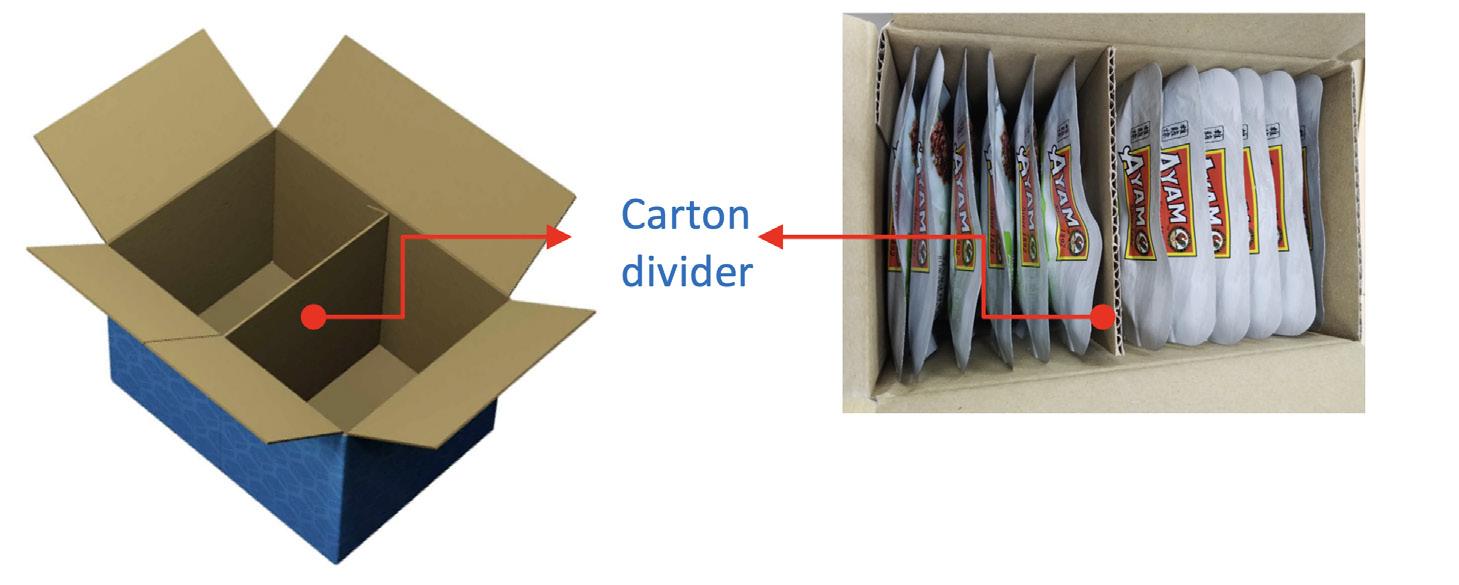
• Lightweighting of carton board quality and reducing carton size.
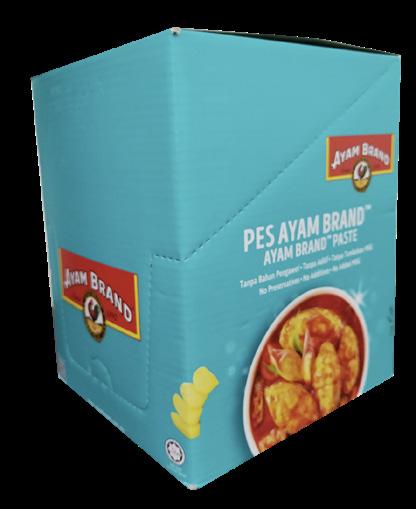

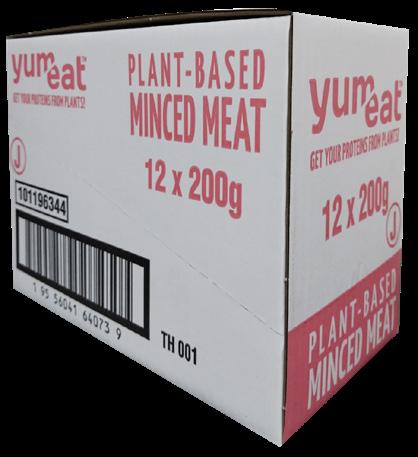
P u b l i c a t i o n 0 7Y e a r 2 0 2 3 87
• In the case of plastic packaging, we lessened the environmental impact by reducing the shrink-wrap thickness from 80 to 60 microns. In total, we managed to avoid 971 kg of plastic consumption per year.

Packaging Carbon Footprint
In 2023, we calculated our greenhouse gas emissions for Scope 3 including our packaging for the frst time.
We estimate that 23.2 ktCO2e emissions are related to our product packaging. This represents a share of 23 % of our total greenhouse gas emissions.
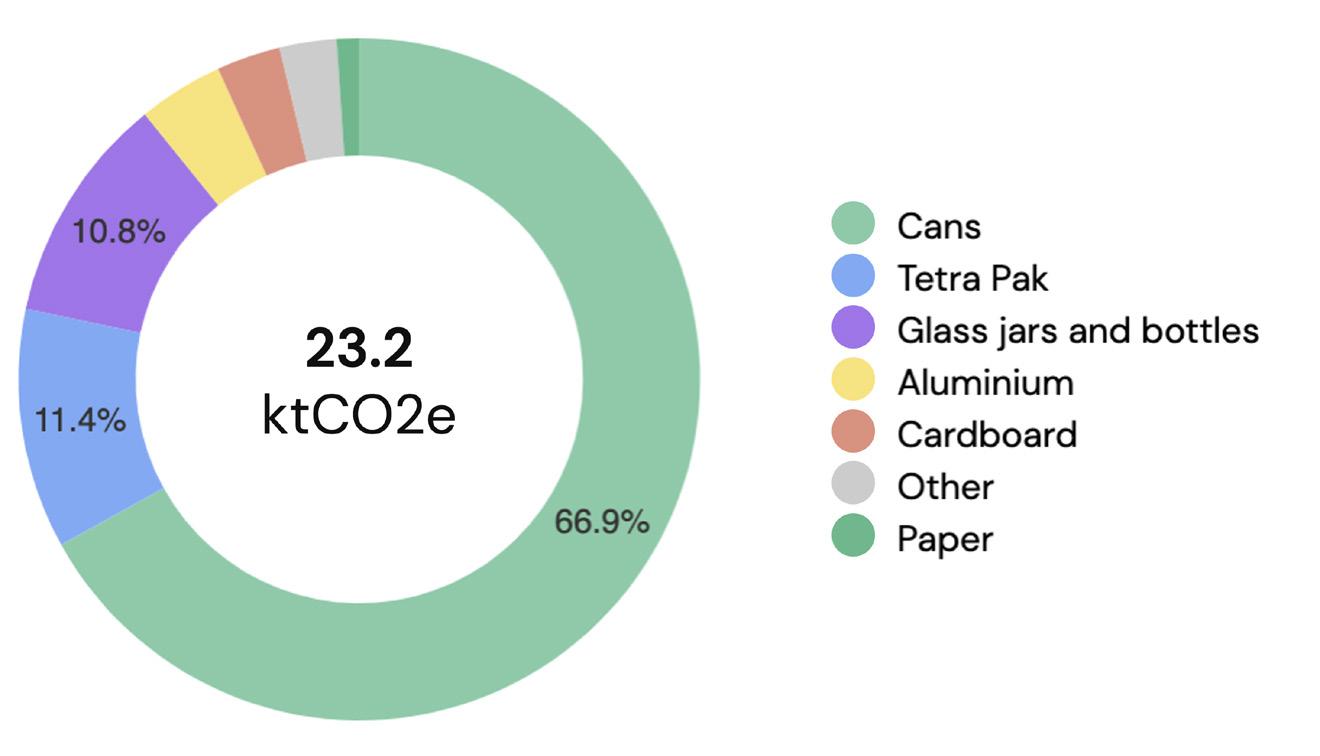
D e n i s A s i a P a c i f c P t e L t dE . S . G . R e p o r t 88
Notably, our packaging primarily consists of cans, which are the primary contributors to these emissions. Throughout the greenhouse gas assessment of our packaging, two compelling points emerged, adding a positive perspective to our efforts:
• The carbon footprint of our product ingredients is impressively low. By predominantly utilizing vegetables & pulses, fsh, and a concise list of ingredients in our recipes, our food ranks among the lowest in carbon footprint. This emphasizes the signifcance of addressing our packaging practices to further enhance our overall sustainability.
• Our commitment to selling products with extended shelf lives is a strategic move. These products require robust packaging to withstand the sterilization process and ensure the safety of our offerings over a number of years. This not only aids in reducing food waste but also minimizes the risk of spoilage during transportation or exposure to external elements.
Whilst acknowledging that perfection in packaging remains elusive, our ongoing efforts to enhance sustainability are steering us in the right direction. As we strive for a more sustainable food system, each initiative mentioned in this chapter plays a crucial role in providing more sustainable food.
P u b l i c a t i o n 0 7Y e a r 2 0 2 3 89
Green Buildings
Buildings have extensive direct and indirect impacts on the environment. During their construction, occupancy, renovation, repurposing and demolition, buildings use energy, water, and raw materials, generate waste, and emit potentially harmful atmospheric emissions. These facts have prompted the creation of Green Building standards, certifcation, and rating systems aimed at mitigating the impact of buildings on the natural environment through sustainable design.
One of our major and most challenging environmental pledges is to certify all the buildings and facilities DAP owns under a Green Building scheme by 2030. This ambitious declaration underscores our dedication and the magnitude of our commitment to creating healthier work environments for our employees while reducing the ecological footprint of the buildings they’re working in.
To align with the specifcities of each geographical location, we have opted to embrace the local Green Building scheme in every country where we operate. The standards may vary slightly, but they all serve the common goal of mitigating the impact of buildings on the natural environment through sustainable design.
As of now, we have successfully certifed six of our offices and facilities across three different countries:
D e n i s A s i a P a c i f c P t e L t dE . S . G . R e p o r t 90
Maison Denis Building, Singapore (Denis Asia Pacifc, A. Clouet
Singapore and SFI Supplies Management):
• First Certifcation 2017, under the GreenMark standard.
• Certifcation renewed in 2021. The next renewal will take place in 2024, to validate our continuous improvements.
A.Clouet (Malaysia) office, Kuala Lumpur
• First Certifcation 2019, under the GreenRE standard.
• Certifcation renewed in 2022. Next renewal in 2025.
SFI Food, Malaysian Logistics centres, Taiping (2 buildings: SFI Food P1 and SFI Food P2)
• First Certifcation 2019, under the GreenRE standard, Silver level. These were the frst two buildings in Malaysia to complete the GreenRE certifcation under its Industrial scheme
• Certifcation renewed in 2022. Next renewal in 2025.
Guinea Foods 2, Malaysian Manufacturing facility, Taiping
• First Certifcation 2022, under the GreenRE scheme.
• Renewal in 2025.
P u b l i c a t i o n 0 7Y e a r 2 0 2 3 91
A. Clouet Australia office, Sydney
• First certifed in 2023 under the GreenStar standard, 2 Star level.
• Renewal in 2026.
As we work together with local teams on these projects and learn from various certifcation schemes, we are building up both knowledge and experience. Our teams have the opportunity to test new ideas, identify improvements and gain valuable insights into our buildings and ways to improve them, leading to more efficient and sustainable solutions.
In 2024, our focus is on certifying our newly retroftted manufacturing site in Taiping, Malaysia (refer to Chapter ‘Taiping Manufacturing Master Plan’ page 97). This project, registered under the GreenRE Green Building Scheme for industrial buildings, involves integrating sustainability requirements from the project’s design phase. The primary challenge lies in optimizing thermodynamic needs by exploring how each process element can be reused. Our goal is to establish a highly efficient cooling system, incorporating essential Green Building features such as natural ventilation, LED lighting, waste segregation, and ensuring good indoor air quality. The anticipated outcome includes substantial positive impacts on ESG metrics, including reduced greenhouse gas emissions, enhanced staff safety and comfort, improved waste management, and energy savings.
D e n i s A s i a P a c i f c P t e L t dE . S . G . R e p o r t 92


IS TO CERTIFY THAT:
Clouet Australia (ACA) Green Building HAS BEEN AWARDED A: 2 Star Green Star rating IN: Building operations
REPRESENTING: Average practice
RATING TOOL: Green Star - Performance 1.2.0
 DAVINA ROONEY, CHIEF EXECUTIVE OFFICER GREEN BUILDING COUNCIL OF AUSTRALIA
DAVINA ROONEY, CHIEF EXECUTIVE OFFICER GREEN BUILDING COUNCIL OF AUSTRALIA
Certified 5 October 2023 Valid until 5 October 2026

P u b l i c a t i o n 0 7Y e a r 2 0 2 3 93
THIS
A.
www.gbca.org.au Certificate of achievement
Testimonial
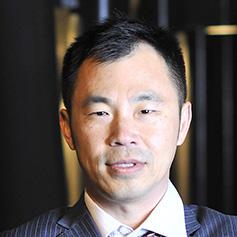
Achieving & investing in Green Building certification for our old office/warehouse was quite a laborious process but it was one of the best decisions we’ve made.
The process pushed us to think more creatively about reducing our environmental impact meaningfully while incorporating energyefficient upgrades & sustainability design features which have resulted in tangible benefits like lower utility bills and improved indoor air quality.
It’s a small step towards a greener future, and we’re glad to be a part of it.
Richard
Mo, Managing Director, A. Clouet (Australia) Pty. Ltd
D e n i s A s i a P a c i f c P t e L t dE . S . G . R e p o r t 94
Environmental Certification
For factories and logistics centers, Green Building certifcation is a logical and sensible addition to our Environmental Management System (certifcation ISO 14001), that we started implementing more than a decade ago:
Malaysia
• Mafpro Sdn Bhd
• Guinea Foods Sdn Bhd
• SFI Food Sdn Bhd
Vietnam
• Denis GM Co. Ltd
Certifed since 2013
Certifed since 2013
Certifed since 2018
Certifed since 2019
ISO 14001:2015 specifes the requirements for an environmental management system that an organization can use to enhance its environmental performance. It is intended for use by an organization seeking to manage its environmental responsibilities in a systematic manner that contributes to the environmental pillar of sustainability.
The Group’s pursuit of this certifcation for all industrial sites, and the successful renewals since 2013, underscores our commitment to responsibly control our environmental impact, particularly in the production stage. The ongoing efforts made by our teams to meet annual certifcation requirements have been a clear demonstration of our sense of responsibility towards the environment.
P u b l i c a t i o n 0 7Y e a r 2 0 2 3 95
Supply chain sustainability
We believe that, for a Fast-Moving Consumer Goods business like ours, the sustainability of the supply chain is key to the durability of the business model and to the company’s ethics.
As an established centennial company, DAP benefts from a heritage of solid values. But, with an internationally renowned brand portfolio, DAP has also to check that its suppliers adhere in turn to its ethics and that they do not participate in unsuitable and/or illegal activities or ventures that could taint the reputation of the company and of its brands.
In 2017 DAP implemented a «Supplier Code of Conduct” to which all our suppliers should adhere.
In 2023 our “Supplier Code of Conduct” was reviewed, updated and improved, taking into consideration our 6 years’ experience in this matter and the new guidelines from the revised governance policy standards from UN Global Compact.
These improvements cover many aspects such as Human Rights, Social Governance, Anti-Corruption, Climate Change and Protection of the Environment and Resources.
We also took this opportunity to better defne the scope of our Supplier Code of Conduct (SCC), by implementing 3 screening tools:
D e n i s A s i a P a c i f c P t e L t dE . S . G . R e p o r t 96
1) The requirement for an SCC is limited to companies whose turnover with us is over SGD 100k.
2) The requirement is dropped to SGD 5K if the company’s business is in transportation, fshing or palm oil.
3) If the partner company has implemented a more stringent Code of Conduct than ours, we can decide that their COC is compliant with our requirements and therefore they would not need to sign our SCC.
In our supply chain, our upmost priority is safety. As we are revamping our main factory (Taiping Manufacturing Master Plan Project), we are constructing the plan of this major renovation through the flters and demands of our ESG ambitions.
As far as DAP’s direct supply chain is concerned, our Ethics Committee has identifed two issues, sensitive to consumers, NGOs and public opinion: sustainability of tuna supplies and palm oil. These two topics have therefore been put top of the list of our priorities.
Taiping Manufacturing Master Plan
The frst phase of the Manufacturing Development Master Plan, the CFPP (Centralized Fish Processing Plant), started with the building renovation in late 2023. The purpose of this phase is to improve the fsh preparation process, with the following ESG benefts:
- Compliance with higher standards of safety, environment
P u b l i c a t i o n 0 7Y e a r 2 0 2 3 97
preservation, energy optimization, including “Green Building” gold certifcation, - Improved employees’ working conditions and productivity, - Higher employees’ working skills: enhancement and performance recognition, - Better raw material yield and by-products valorization.
The ramping up of the CFPP will start in September 2024, and will be followed by the next phase of the master plan: the upgrading of the packing and canning processes, the continuous improvement of our Taiping industrial center and of its ESG footprint.
Sustainability of our tuna supply
Even though DAP’s tuna business represents less than 0.1% of the yearly world tuna catch, the company is committed to being a brand that stands for quality and acts with responsibility by taking a strong stand for compliant fshing together with sustainable fsh sourcing and manufacturing practices.
We do not have a direct relationship with tuna fshing vessels as we work with fsh canning factories, which produce our recipes to our specifcations, and under our quality control. Our area of influence is in the purchasing specifcations we provide to the canned tuna manufacturers.
D e n i s A s i a P a c i f c P t e L t dE . S . G . R e p o r t 98
The use of stringent tuna purchasing specifcations that require sustainable fsh sourcing is our way of putting pressure on the tuna fshing industry to make progress not only on sustainable tuna fshing but also on fair and compliant labour practices.
Manufacturers who have been selected to produce for DAP must accept our sustainability specifcations.
Our sustainability specifcations cover three main categories:
(1) The biomass
According to the International Seafood Sustainability Foundation (https://www.iss-foundation.org/), globally, 61% of the 23 major commercial tuna stocks are at healthy levels of abundance, 22% are at an intermediate level, and 17% are overfshed.
DAP only uses tuna species which are not endangered and from biomass that is healthy (not at an intermediate level and not overfshed).
Data on the biomass situation is assessed by Regional Fisheries Management Organizations (RFMO), international intergovernmental organizations dedicated to the sustainable management of fshery resources in international waters. We follow the Indian Ocean Tuna Commission (IOTC/iota.org) and the Western and Central Pacifc
P u b l i c a t i o n 0 7Y e a r 2 0 2 3 99
Fisheries Commission (WCPFC/www.wcpfc.int) in particular. Most of their data is published by ISSF (International Seafood Sustainability Foundation).
DAP therefore only sources three species of tuna:
• Skipjack tuna (KATSUWONUS PELAMIS)
Most of our canned tuna is produced using skipjack tuna. The skipjack tuna used by our brands is caught in the Pacifc Ocean, in areas assessed by WCPFC as not overfshed, but they could come from any other fshing area where skipjack tuna resources are healthy (not overfshed) as assessed by RFMOs.
In the year 2023, 100% of our skipjack tuna was sourced in line with this sustainability specification.
• Yellowfin tuna (THUNNUS ALBACARES)
DAP uses yellowfn tuna for canned tuna in oil or in water. In some parts of the world, yellowfn tuna is overfshed. Our requirement is that yellowfn tuna for our brands is fshed from the Western Pacifc, which is assessed as not overfshed by the WCPFC.
In the yearly period 2023, 100% of our yellowfin tuna was sourced in line with this sustainability specification.
D e n i s A s i a P a c i f c P t e L t dE . S . G . R e p o r t 100
• Tonggol tuna (THUNNUS TONGGOL)
As we may regularly experience several months without any supply from the Western Pacifc, the only solution to maintain this sustainability ratio on yellowfn is to reduce the importance of this species in our production.
We have therefore managed, in about 75% of our supplies, to replace yellowfn by a lesser-known species called Tonggol. In terms of sustainability balance, such a species presents both a beneft and a drawback. On the plus side, Tonggol is a coastal fsh caught by local small-scale fsheries. This contributes to the local economy, and this type of tuna is not listed as an endangered species. On the downside, these local species of tuna are not used worldwide by the major industries, therefore there is no official monitoring for their biomass by RFMOs.
These local coastal fsheries are however, fully monitored by the canning factory which uses Tonggol raw material for our production. They have to comply with a lot of criteria and are audited every year. The list of requirements comprises:
• Compliance with fshing laws and regulations
• Compliance with human rights and employment laws and regulations
• Full fsh traceability
P u b l i c a t i o n 0 7Y e a r 2 0 2 3 101
During the period, 100% of Tonggol was caught in the Western Pacifc.
(2) The Supplier Code of Conduct
As explained above, DAP works with suppliers who share the same code of conduct for their factories and who, in turn, make this mandatory for their own suppliers.
• Full compliance of labour and social conditions with national laws and international treaties (preventing, amongst other issues, illegal labour and human rights abuses like slavery or child labour).
• No corruption or bribery.
• No tuna supply from illegal, unregulated, and unreported (IUU) fshing.
• No tuna supply from fshing vessels not certifed as Dolphin Friendly or those practising shark fnning or fshing of endangered species.
(3) The recommendations
We play our role in encouraging our suppliers to improve catching methods for skipjack and yellowfn tuna in order to limit bycatch (accidental catch of other species).
Most of our tuna is caught by purse seine fshing vessels and a small percentage from pole and line. We do not accept other methods of catching (like long lines) because of an excessive bycatch rate.
D e n i s A s i a P a c i f c P t e L t dE . S . G . R e p o r t 102
As of today, our suppliers are unable to distinguish between the percentage catch of purse seine on free school tuna versus purse seine on FADs as they are mixed in the fshing vessels. We are, however, in constant dialogue with our suppliers who are committed to collecting data and sharing technical information. This should allow us a better understanding of the situation within a short time frame in order to improve our purchasing specifcations.
As a company involved in canned fsh, we have on numerous occasions taken the opportunity to express our opinion that Marine Reserves and Marine Protection Areas should be enlarged; additionally, well managed quotas for fsh caught based on scientifc data is an effective tool to manage and to protect fsh resources for future generations. We specifcally express our support to promote the following areas as Marine Reserves and we pledge not to supply fsh from these seas:
• the Antarctic Ross Sea
• Pulau Besar and Merlimau in Melaka, Malaysia
• Port Dickson marine park in Negeri Sembilan, Malaysia
• Pulau Lima in Johor, Malaysia
• Pulau Songsong in Kedah, Malaysia
(4) Data monitoring
We have since 2022 implemented an obligation to monitor data for all our tuna production with six distinct categories:
P u b l i c a t i o n 0 7Y e a r 2 0 2 3 103
• Name of species
• Catching area
• Catching method
• Name of vessel
• Production code
• Quantity produced under the above 5 categories.
In collaborating more closely with our suppliers, we are therefore able to trace our tuna all the way from the vessels that fshed them to the retail stores where they are sold.
Testimonial
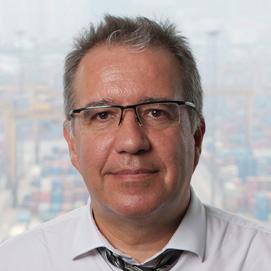
After 40 years of service at Maison Denis, notably managing Supply Chain, Procurement and Logistics, I will retire in 2024. I had the chance to participate in the start of the ESG revolution in our entire Value Chain; I believe it will lead us in the coming twenty years towards the ultimate collective objective of Carbon Neutrality. At the same time, this profound change of mindset will really help ito improve the environment, the protection of resources and corporate governance globally. I encourage the younger generations working at Maison Denis to embrace and participate actively in this transition.
Mr Jean-Philippe LAMY, Supply Chain & Procurement Director, Denis Asia Pacific Pte Ltd
D e n i s A s i a P a c i f c P t e L t dE . S . G . R e p o r t 104
Sustainable Palm Oil
(1) DAP palm oil policy
DAP has, since 2011, implemented a policy of ‘responsible use’ of palm oil, and, within a few years, reached its target of 100% certifed sustainable palm oil. This policy was combined with a premiumisation of its main brands, replacing basic palm oil wherever technically possible, by an alternative vegetable oil with a healthier nutrient profle, like olive oil for instance.
Despite our extremely low use of palm oil, DAP has nevertheless established and adhered to two stringent standards:
• Palm oil used in any DAP products should be sustainable. Our factories are RSPO certifed and, for our brands, they only source palm oil of West Malaysian origin which is certifed as sustainable. If an OEM client is unwilling to be charged for the extra cost associated with this, we fully bear the cost of the green credits, which are the minimal form of sustainability.
• DAP product labels should be clear and explicit. When a DAP product contains palm oil, it has to be clearly stated on the ingredient list.
(2) 2023 figures
Today, palm oil is present in a very limited number of our products.
P u b l i c a t i o n 0 7Y e a r 2 0 2 3 105
Below are the quantities purchased in 2023 and the associated sustainability certifcate:
- For Ayam Brand™, 100% of the Palm Oil purchased is certified RSPO Segregated. It represents 111 tons in 2023.
- For other brands, including Original Equipment Manufacturer (OEM), we purchased 36 tons of certified RSPO Segregated, and 79 tons was claimed with RSPO Green Credits (Book and Claim).
- For other products derived from palm fruits (like palm fruit puree), we purchased in 2023 a total of 1097 tons of palm fruit, and only 610 tons were used in the fnal product (palm fruit puree). The remainder, fber and kernel, were given back to our supplier for valorization. There is no sustainability scheme planned for palm fruit puree as it is a marginal food item; therefore, we purchased in 2023 an equivalent tonnage (610 tons) of RSPO Green Credits (Book and Claim), to cover the quantity in our products, to support sustainable palm oil and to achieve a full 100% sustainability on palm products which is beyond expectations.
(3) Support Asia for Sustainable Palm Oil (SASPO)
DAP is proud to be among the founding members of Singapore Alliance for Sustainable Palm Oil (SASPO), an initiative of WWF Singapore. (www.wwf.sg/sustainability-circular-economy/sustainable-palm-oil/).
D e n i s A s i a P a c i f c P t e L t dE . S . G . R e p o r t 106
The vision of the Alliance is to make CSPO the norm to stop haze occurring as well as deforestation and animal habitat loss in the region. It aims to provide a platform for companies to come on a sustainable journey towards producing, trading and using certifed sustainable palm oil.
DAP’s palm oil policy proves that it is possible for medium sized companies to develop and implement sustainable and responsible policies. Recent years’ events have demonstrated that it is our duty to participate in all possible efforts to reduce and eventually eliminate haze from our lives.
Whatever their size, all companies should adopt this necessary environmental goal.
Thanks to its palm oil policy, implemented since 2011, DAP has been 100% certifed as sustainable in terms of its palm oil ingredient and palm fruit products since 2020. We have progressed exactly as per our commitments.
• In its 2017 palm oil scorecard report for Malaysia/Singapore based local companies, WWF gave DAP the best score of 10 out of 12 with this comment:
“Leading the way
DENIS ASIA PACIFIC (AYAM BRAND)
SCORE: 10
P u b l i c a t i o n 0 7Y e a r 2 0 2 3 107
WWF commends Denis Asia Pacifc for showing strong leadership in regard to the procurement of sustainable palm oil within the Southeast Asia region. Denis Asia Pacifc has demonstrated transparency and commitment to purchase 100 per cent CSPO, is an active member in RSPO, a founding member of SASPO and publicly discloses the total volume of palm oil volumes used for each of their brands. While it has yet to achieve 100% physical CSPO, Denis Asia Pacifc is leading the way for other Singapore-based companies to follow.”
• In June 2018, Mr Daniel Denis, DAP’s ESG committee Chairman, represented SASPO at the Paris Roundtable summit on Sustainable Palm Oil.
• In 2020, DAP received a score of 15.5 out of 22 in the international WWF Palm Oil Buyers Scorecard. It was the highest scoring company out of the 16 Asian companies assessed and sits in the top quarter of 173 companies assessed globally.
• In 2021, DAP ranked second in Asia behind Fraser and Neave, with a score of 14.75 out of 24 in the international WWF Palm Oil Buyers Scorecard (https://palmoilscorecard.panda.org/#/scores)
• In 2022, SASPO ceased to be organized under a Singaporeregistered company as the fxed costs were consuming too much of its resources and became an informal committee of
D e n i s A s i a P a c i f c P t e L t dE . S . G . R e p o r t 108
professionals under the Singapore WWF’s supervision. The yearly memberships have been transformed into donations to WWF’s SASPO funding.
• In 2023, DAP received a score of 8.9 out of 10 on the Shared Responsibility Scorecard by RSPO. (https://rspo.org/as-anorganisation/shared-responsibility/the-shared-responsibilityscorecard/). We rank among the top 67 out of 1866 companies that were screened. The average grade for all companies is 2.1 in comparison.
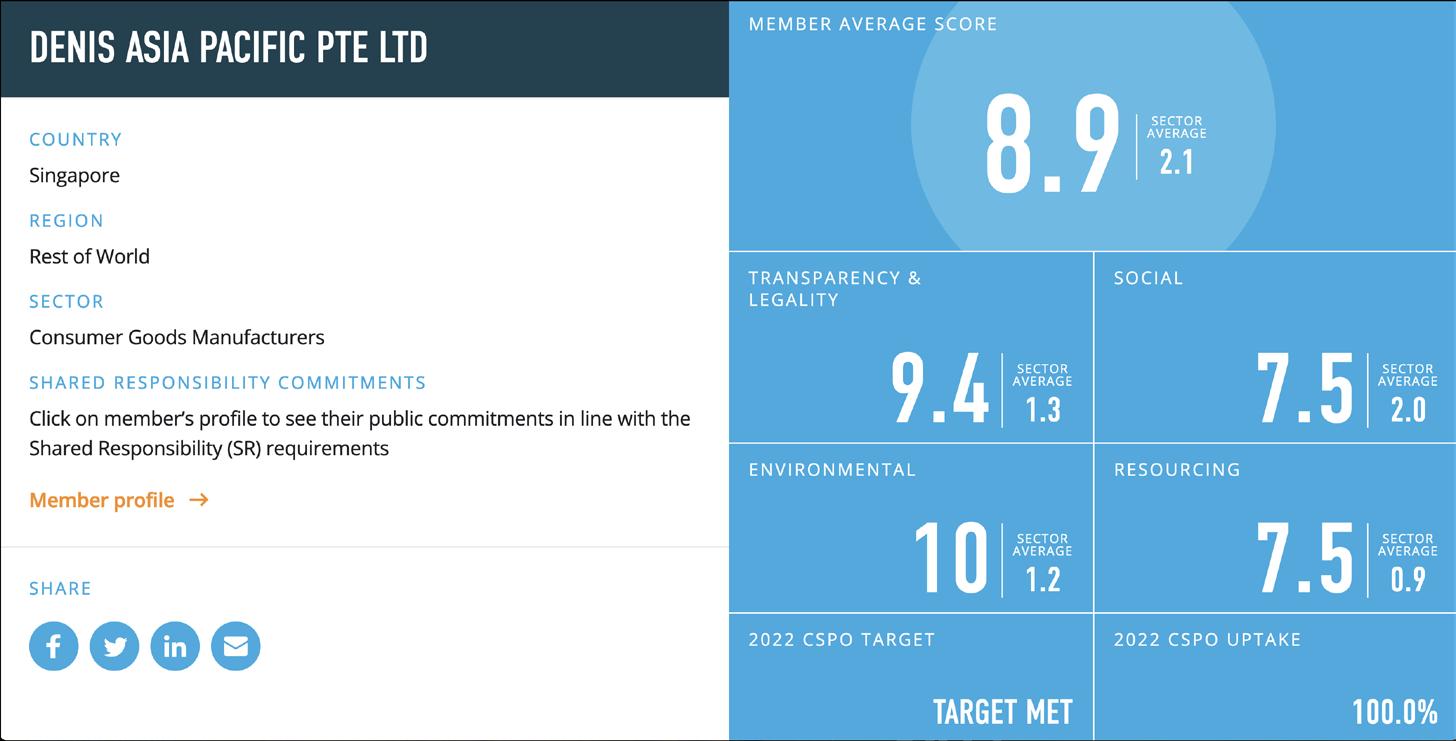
P u b l i c a t i o n 0 7Y e a r 2 0 2 3 109
Life Cycle Assessments
To gain a comprehensive understanding of the environmental footprint associated with our products, we initiated the practice of conducting Life Cycle Assessments (LCA) on our core product range several years ago. This meticulous process serves a dual purpose: enhancing our comprehension of greenhouse gas (GHG) emissions at the product level and providing a holistic view of the broader environmental impact beyond climate change alone. LCAs encompass a wider array of environmental impacts than climate changes, including impacts on biodiversity, water availability, resource utilization, eutrophication, acidifcation, ozone depletion, land use, and ecotoxicity, among others.
Examining all these impacts at each stage of our products, from the cultivation of ingredients to the usage and disposal of packaging by the end consumer (referred to as «Cradle to Grave» in LCA terminology), yields invaluable insights directing our focused actions.
To date, we have completed this comprehensive analysis for three of our flagship products:
- Sardines and Mackerel in Tomato Sauce, in cans.
- Baked beans in Tomato Sauce, in cans.
- Coconut Milk and Coconut Cream, in cans and TetraPak
The fndings from these studies have provided intriguing information. For instance, in our sardine and mackerel products, the packaging in cans constitutes the majority of our climate change impact. In
D e n i s A s i a P a c i f c P t e L t dE . S . G . R e p o r t 110
the case of coconut products, the farming stage of the coconut itself emerges as the primary source of greenhouse gas emissions. Conversely, for baked beans, the manufacturing stage exerts the most signifcant impact on climate change, attributed to our use of fossil fuels in production.
In an effort to simplify and benchmark the complex results of our LCAs, we are translating all environmental impacts into a Single Score, adhering to the European Commission’s defnition and guidelines. The outcome is unequivocal: our products rank among the food items with the lowest environmental impact. To underscore this commitment, we participated in the French Eco-Score initiative, which aims to showcase the environmental impact of food products on their packaging. On this scale, the majority of our products secure A or B ratings (the best scores), with only a select few receiving a C rating (the lowest rating being E).
Our dedication to this ongoing initiative continues, as we remain committed to assessing more of our products along the way. We frmly believe that reducing our impact begins with a thorough understanding that will then contribute to a more sustainable food supply future.
P u b l i c a t i o n 0 7Y e a r 2 0 2 3 111
 Curry with Ayam Brand ™ mackerel in tomato sauce
Curry with Ayam Brand ™ mackerel in tomato sauce

Social Responsibility
D e n i s A s i a P a c i f c P t e L t dE . S . G . R e p o r t 114
DAP’s HR strategy is to attract, motivate, train, and retain quality employees in order to build together with them a profitable, durable and sustainable business model.
Creating value for employees is an important part of our business vision. DAP believes that our employees play the prime role of driving the company and determining its success.
We are committed to building an organization with a respectful and honest environment for our employees, whilst creating value for customers and stakeholders.
In 2023, Human Resources (HR) strategies have evolved to meet the dynamic demands of the workplace, emphasizing a holistic approach to employee well-being and organizational success. We are prioritizing employee experience as a key driver of engagement and productivity. Diversity, equity, and inclusion have become central pillars of HR strategies, acknowledging the importance of creating inclusive workplaces that celebrate individual differences. Continuous learning and upskilling initiatives are also at the forefront, as we recognize the need to adapt to a rapidly changing landscape.
P u b l i c a t i o n 0 7Y e a r 2 0 2 3 115 Our People
Human Resources
Strengthening a team through the strategic addition of new positions is a crucial step in enhancing organizational capabilities and achieving collective goals. One of our key focuses was to strengthen our HR team in Taiping, Perak Malaysia whereby we have a staff strength of 1,200 employees under 3 different entities. The addition of a Senior Executive for Employee Relations and a Senior HR Manager gave us an opportunity to inject fresh perspectives, creativity, and innovation into the team dynamics. This was then followed by many discussions in Quarter 4 in planning for the centralization of the HR team structure. This involved consolidating HR functions, such as recruitment, training, and payroll, into a unifed and centrally managed department. This approach allowed for standardized policies and procedures, enabling organizations to maintain a cohesive corporate culture and comply with regulations more effectively. Centralizing HR services also facilitates better data management and analytics, providing organizations with valuable insights into workforce trends and performance metrics.
As organizations adapt to the changing landscape, the prioritization of health and mental well-being in the workplace has become more pronounced. HR teams in the various entities implemented numerous wellness initiatives; Sports Day was a huge success for Mafpro, Guinea Foods & SFI Food with a turnout of more than 700 employees; A.Clouet (Malaysia) had their frst company-wide revitalizing team
D e n i s A s i a P a c i f c P t e L t dE . S . G . R e p o r t 116
building retreat at the Damai Laut Beach and the colleagues in Maison Denis Singapore had an amazing time bonding with one another during the Christmas Lunch & Team-Building at ShangriLa Singapore. DAP continues to foster a culture that destigmatizes mental health concerns and encourages open conversations. We hosted a series of programs during World Mental Health Week on our learning platform “talentLMS” focusing on nurturing mental health. We aimed to raise awareness about the importance of maintaining a healthy mental state and provide guidance on coping strategies when facing challenges. This not only enhanced employee satisfaction but also contributed to a more resilient and engaged workforce, ultimately driving long-term success for both individuals and the organization.
Embarking on a continuous improvement journey towards gender equality, we embraced the United Nations Global Compact (UNGC) and its Women’s Empowerment Principles (WEP). The Company’s commitment to fostering a more inclusive and equitable workplace began with a comprehensive assessment of existing policies and practices. The Company acknowledges that the journey towards gender equality is ongoing, with regular assessments and continuous improvement at its core. By adopting UNGC WEP tools, we set the foundation for a more gender-inclusive workplace, marking the initial steps in a journey that aligns with global best practice for women’s empowerment.
P u b l i c a t i o n 0 7Y e a r 2 0 2 3 117
Key figures
At the end of December 2023, DAP staff totalled 1,791 employees; a decrease of 3% compared to 2022. The decrease in headcount is due to the completion of fxed-term contracts in the manufacturing facilities.
68% of our employees are based in Taiping, Perak Malaysia, supporting our manufacturing and warehousing activities.
Women account for 64% whereby there is a 2% slight reduction in comparison to 2022; this could be due to the completion of fxedterm contracts at the manufacturing facilities. Overall our Company has a high level of female employment among all categories of staff, 2,000 1,800 1,600 1,400 1,200 1,000
D e n i s A s i a P a c i f c P t e L t dE . S . G . R e p o r t 118
600 400 200 0 2020 2019 2018
2021 2022 2023 Female Male
800
Headcount
even if we are slightly weaker at the management level. All our directors are aware that we are not far from reaching gender equality in management and they aim to close the gap within a few years.
Gender equality
Learning and development (L&D) remain crucial for organizations as a cornerstone for success. In today’s dynamic and competitive business environment, the value of fostering a culture of continuous learning cannot be overstated. DAP provided 24,211 hours of training for the year, with an increase of 11,6% in comparison to 2022. This represents an average of 13.5 hours per member of staff. The following chart shows an equitable distribution of training hours across all categories of employees.
P u b l i c a t i o n 0 7Y e a r 2 0 2 3 119
Worker Executive Management 0% 10% 20% 30% 40% 50% 60% 70% 80% 90% 100%
Female Male 66% 63% 56% 34% 37% 44%
The emphasis on cybersecurity has prompted organizations to recognize the critical importance of bolstering their defences against evolving cyber threats. By investing in cybersecurity training, we not only equip our workforce with the knowledge and skills to identify and mitigate potential risks but also create a collective awareness of the role each individual plays in maintaining a secure digital environment. 7 interesting topics of cybersecurity training were covered in 2023 via talentLMS and Proofpoint and this empowered employees with the knowledge and skills to recognize, prevent, and respond effectively to cyber threats.
D e n i s A s i a P a c i f c P t e L t dE . S . G . R e p o r t 120
20 18 16 14 12 10 8 6 4 2 0 Management Average Training hours Executive Worker
At end December 2023, the yearly number of MC leaves was 13,753 days: an average of 7.7 days per employee. The data remains unchanged per the previous year.
P u b l i c a t i o n 0 7Y e a r 2 0 2 3 121
Occupational Health and Safety
Occupational Accidents (OA)
In 2023, we had 24 occupational accidents and a total of 186 injury days from those accidents. The frequency of accidents has slightly increased by 3 more occurrences compared to 2022, but the severity signifcantly decreased, by 42%. This is our lowest number of injury days since the frst publication of our ESG Report in 2018. Our aim should, however, continue to be zero accidents, by prevention, investment, proper work processes, empowerment, previous accident inquiry and debriefs, and education.
Injury days from OA
D e n i s A s i a P a c i f c P t e L t dE . S . G . R e p o r t 122
Each accident is investigated to identify its root cause and to implement an action plan. Even if this helps prevent accidents 40 35 30 25 20 15 10 5 0 2020 2019 2018
2021 2022 2023 800 700 600 500 400 300 200 100 0 2020 2019 2018
2021 2022 2023
recurring, it is still a lagging indicator: the event has already happened. Hence, we are also monitoring a set of other Health & Safety indicators that are more reflective of our actions.
Inspection is our watchword. By increasing our presence in the field, we can detect and solve issues before an accident occurs. In 2023, we conducted more than 100 factory walkthroughs in our manufacturing sites. In addition to these weekly walkthroughs, we also inspect our contractors working on-site, to ensure they are complying with the permit to work delivered to them after our safety briefing. Specific apparatus is also subject to inspection, such as lifting equipment. To facilitate our actions, we are assisted by a software package named «Safety Culture». This helps us build our audit checklist, conduct inspections using tablets live in the field, and automatically generate reports and statistics.
P u b l i c a t i o n 0 7Y e a r 2 0 2 3 123
Road Safety
Concerning road safety, our influence is limited but we try to keep our workers aware of this. The overall number of road accidents in Malaysia is worryingly high and behavioral changes among motorcyclists and the youth are a cultural challenge.
In 2023, the number of road accidents while commuting increased to 23. The commuting accidents resulted in 636 injury days.
D e n i s A s i a P a c i f c P t e L t dE . S . G . R e p o r t 124
30 25 20 15 10 5 0 2020 2019 2018 Commuting accidents (CA) 2021 2023 2022 900 800 700 600 500 400 300 200 100 0 2020 2019 2018 Injury days from CA 2021 2023 2022
EHS Week in Malaysia
The EHS Week 2023 marked a signifcant collaboration between our three companies in Taiping: Mafpro, Guinea Foods, and SFI Food, aiming to instill a culture of safety, health, and environmental responsibility. The full-week event started on October 23rd and went on till October 27th, deploying a myriad of impactful activities.
The week started with a momentous inauguration ceremony, officiated by the Director of the Department of Occupational Safety and Health (DOSH) Perak.
The 2 frst days were dedicated to Emergency Preparedness and Response, with a Fire Drill and a Fire Safety talk conducted in partnership with the local frefghting department. It emphasized the importance of this subject, providing attendees with valuable insights into fre prevention strategies and safety protocols.
As the week progressed, Wednesday and Thursday were dedicated to promoting community welfare through Blood Donation. These drives not only exemplifed corporate social responsibility but also showcased the power of collective action in supporting healthcare initiatives and saving lives.
The culmination of EHS Week 2023 on Friday featured a Defensive Riding Motorcycle event, promoting road safety awareness and
P u b l i c a t i o n 0 7Y e a r 2 0 2 3 125
imparting crucial defensive driving skills. Through expert instruction and practical demonstrations, participants were empowered to navigate roadways with confdence and caution, mitigating risks and promoting safer transportation practices.
These core activities were complemented by a series of other activities:
• Carbon Free Week encouraged individuals to reduce carbon emissions by adopting eco-friendly practices such as carpooling.
• Clean Plate Challenge aimed to combat food waste by promoting mindful consumption habits.
• Used Item Competitions encouraged participants to embrace the principles of reduce, reuse, and recycle, fostering a culture of resourcefulness and waste reduction.
• Climate Fresk event (refer to the chapter Climate Fresk page 74).
Throughout EHS Week 2023, participants were not only enriched with knowledge and skills but also rewarded with various gifts as tokens of appreciation, fostering a sense of camaraderie and recognition. In essence, the EHS Week 2023 served as a beacon of corporate responsibility and community engagement, in a shared commitment to safety, health, and sustainability.
D e n i s A s i a P a c i f c P t e L t dE . S . G . R e p o r t 126
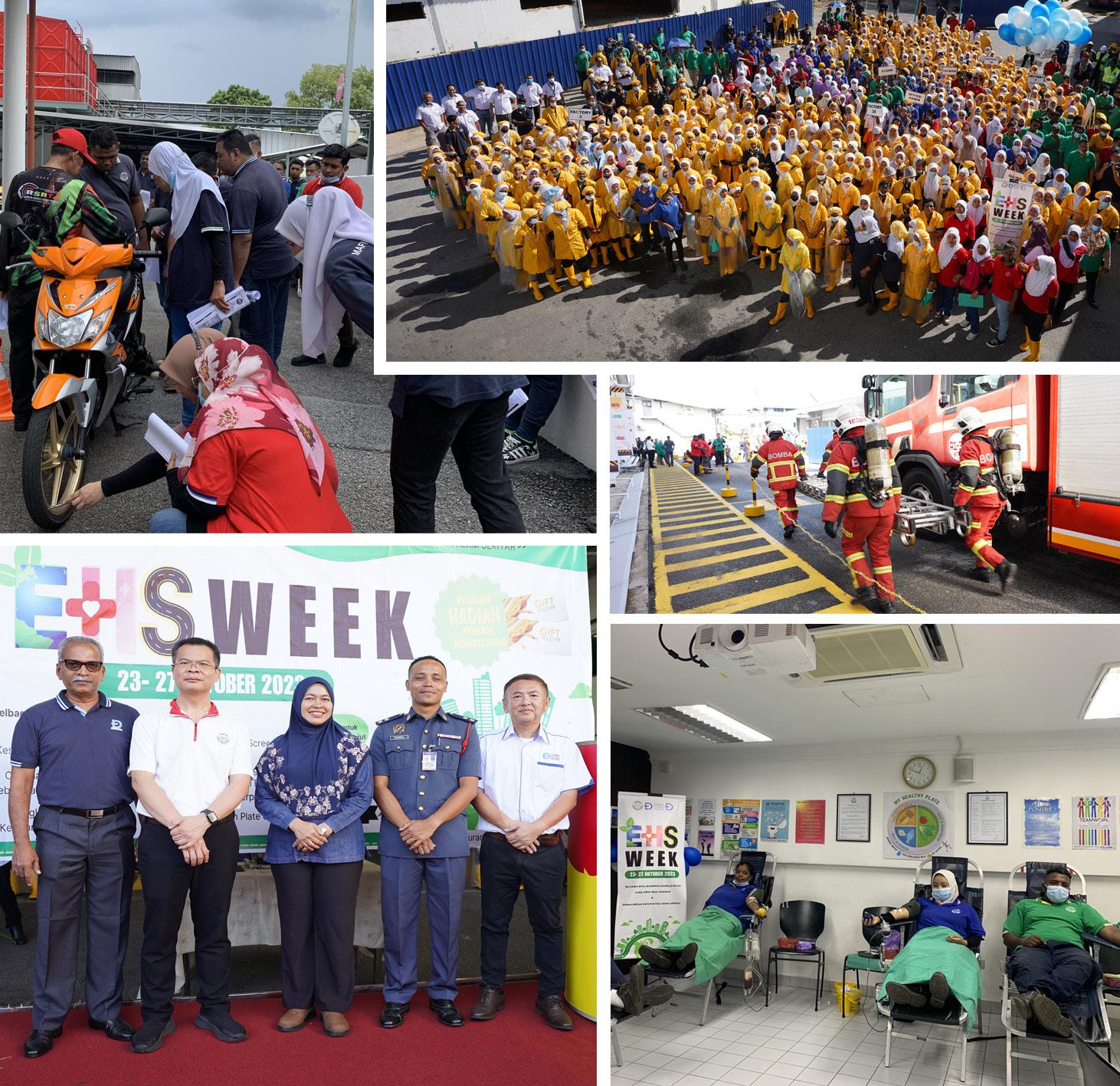
P u b l i c a t i o n 0 7Y e a r 2 0 2 3 127
MyKenzen
MyKenzen is a nutrition service consulting company developed by Maison Denis in Singapore helping individuals, corporate entities, government boards, food service and manufacturing industries, and the public to promote overall health & well-being.
MyKenzen extends its efforts into promoting health and wellness for the employees of the companies under DAP.
In 2023, MyKenzen organized and implemented the «Achieve a Healthier Weight Challenge,» involving the participation of seven entities: Maison Denis Singapore, Denis China/HK, PT Faretina, Denis G.M., Guinea Foods, Mafpro, and SFI Food. Despite being situated in six different countries, MyKenzen engaged 119 colleagues in the competition. Participants underwent weight assessments before and after the challenge, along with an online Teams nutrition session entitled «Managing a Healthier Weight,» facilitated by our nutritionist. Each entity took responsibility for coordinating activities to support their staff throughout the health initiative, and motivational posters were distributed during the challenge.
Following the 12-week challenge from August 1 to October 24, 2023, we recognized the top 20 employees who demonstrated the most signifcant percentage improvements in weight. The results were impressive, highlighting improvements ranging from 5.04% to
D e n i s A s i a P a c i f c P t e L t dE . S . G . R e p o r t 128
10.39% of their initial body weight. Finally, MyKenzen conducted an online debriefng session for the health challenge, with the winning participants sharing insightful tips. The accompanying photos depict various activities undertaken during the Health Challenge.

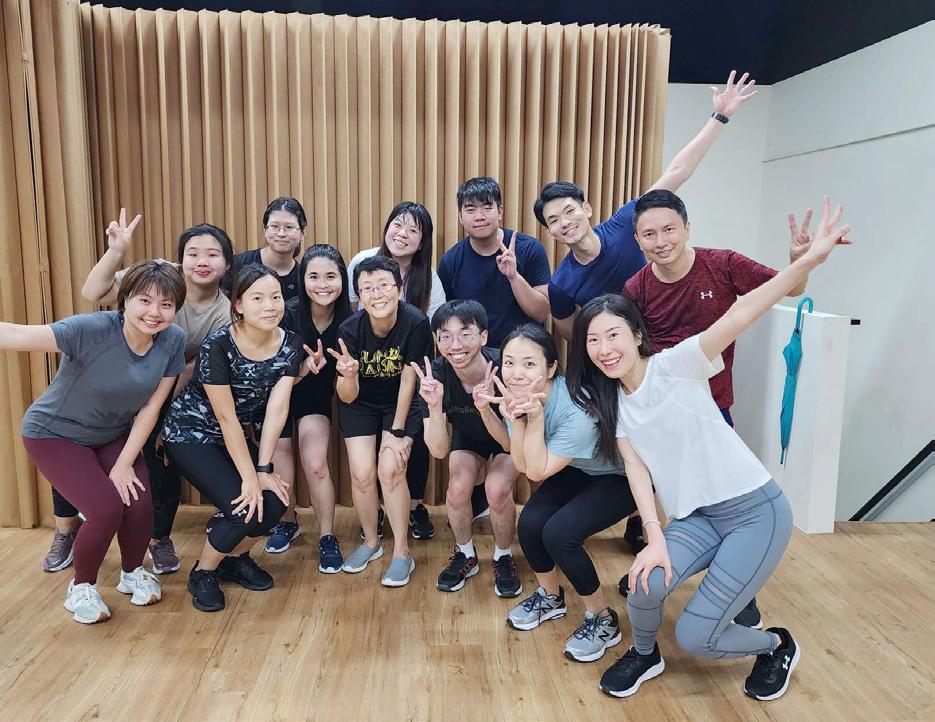
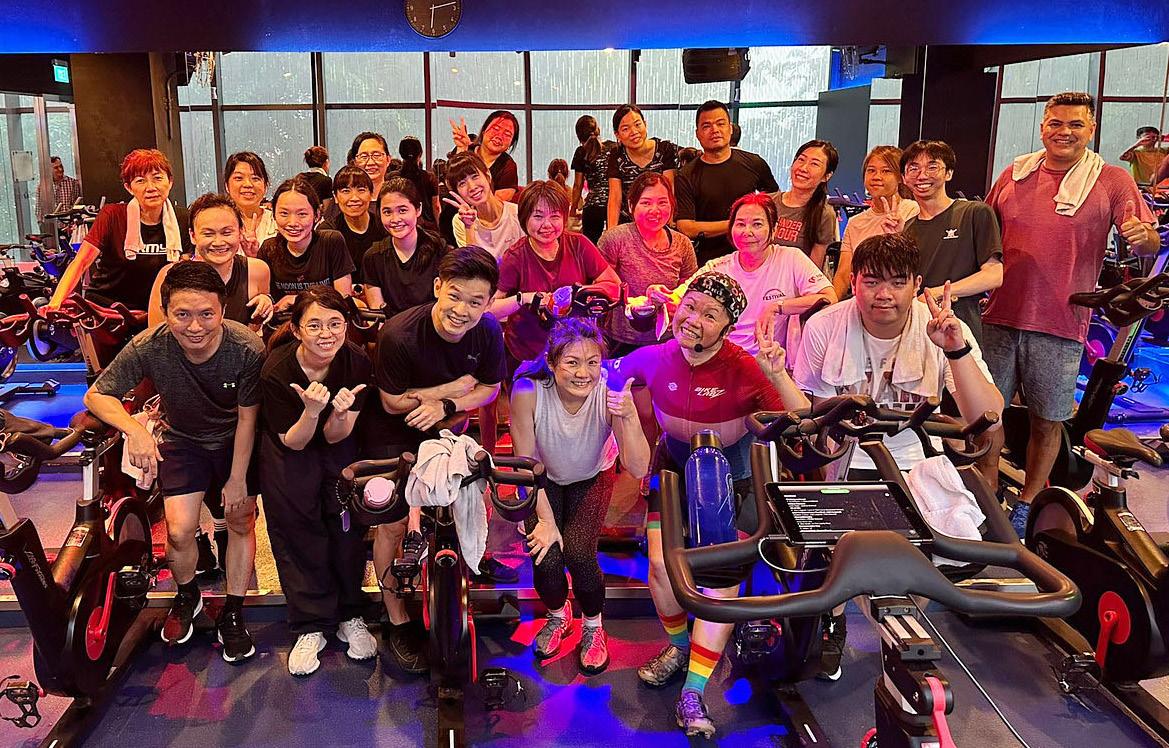
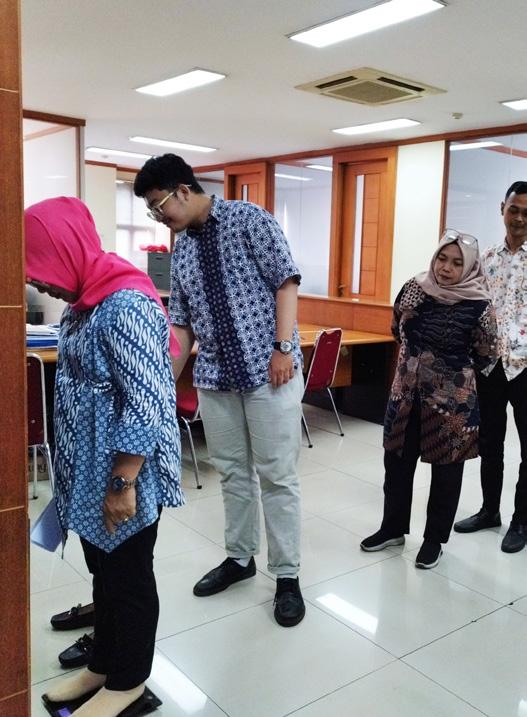
P u b l i c a t i o n 0 7Y e a r 2 0 2 3 129
Awareness
ESG is a subject that should be shared and endorsed by all employees in a company whatever their occupation or position. Since the implementation of our United Nations Global Compact membership and our ESG policy, we have been organizing events to raise the environmental awareness of all our employees.
Sustainable Office Competition
We are pleased to share the incredible strides our company has made towards sustainability through our Sustainable Office Competition 2023. This initiative brought together teams from around the world to showcase their innovative practices aligned with our ESG Sustainable Goal Development commitments.
Goal 5: Gender Equality
Goal 9: Industry, Innovation and Infrastructure
Goal 12: Responsible Consumption and Production
Goal 14: Life Below Water
Goal 15: Life on Land

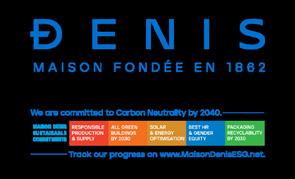







D e n i s A s i a P a c i f c P t e L t dE . S . G . R e p o r t 130
S u s t a i n a b l e O f f i c e c o m p e t i t i o n 2 0 2 3 The best Initiatives will be awarded C o n t a c t P a b o M e r n o o r S h e r m n f y o u h a v e a n y q u e s t o n s p a b o m e r n o @ d e n s c o m / s h e r m n o w @ m y k e n z e n c o m Continue to work towards the 5 selected Sustainable Development Goals: For more information on the goa s vis t Un ted Nations Additional: To work on an initiative related to health & wellness
Our Malaysia team launched a commendable initiative under Goal 5, promoting gender equality. They encouraged female employees aged 40 and above to undergo regular mammogram screenings. To support this initiative, they offered a subsidized rate/reimbursement for mammogram screening, and allowed staff to take a half-day off for the screening with the Head of the Department’s approval.
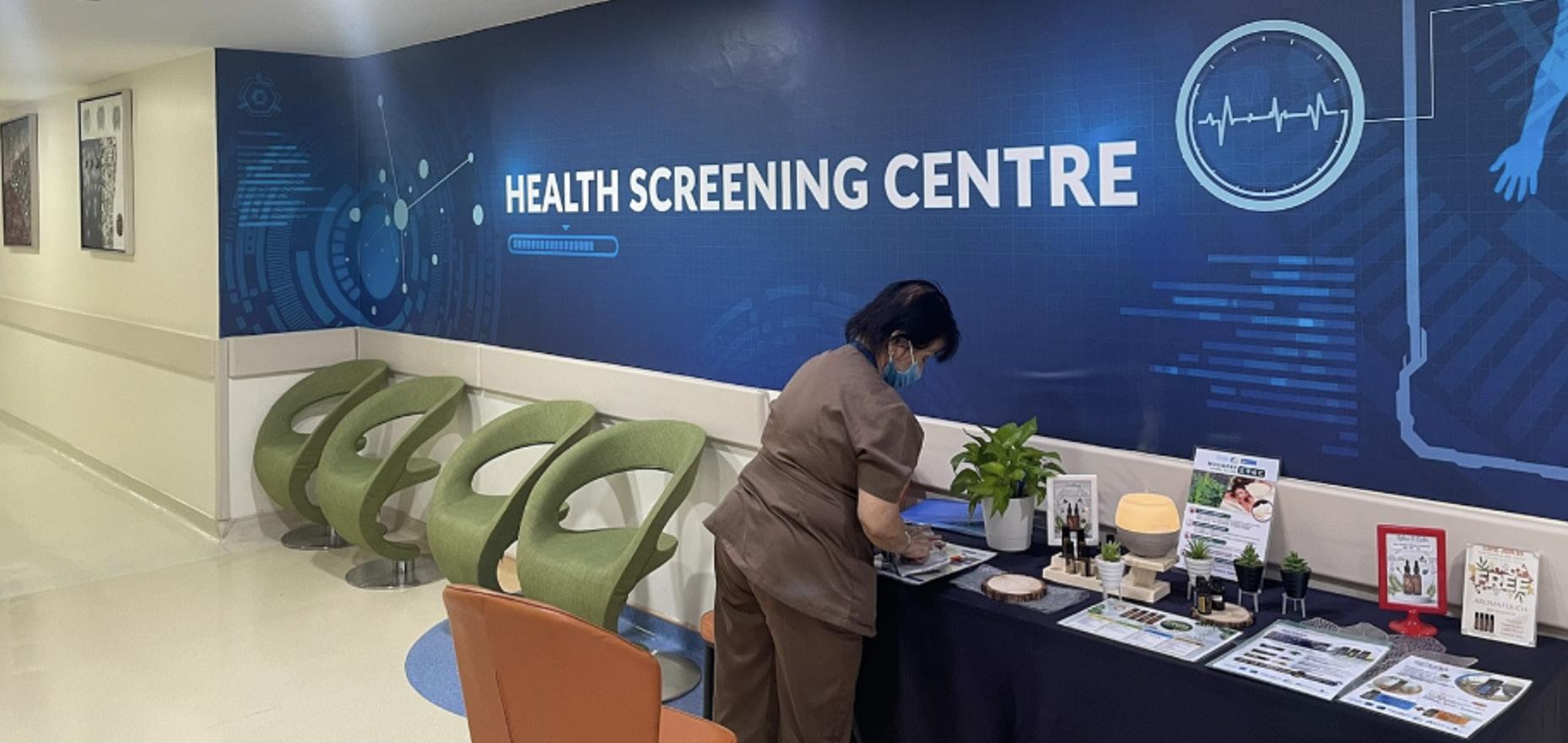
For Goal 12, various offices made remarkable efforts.
The Vietnam office successfully utilized the «Reshare» platform to contribute to the circular economy, giving a second life to clothes. Through a three-step process, they have effectively extended the life cycle of clothing, aligning with RESHARE’s mission to reduce waste and promote
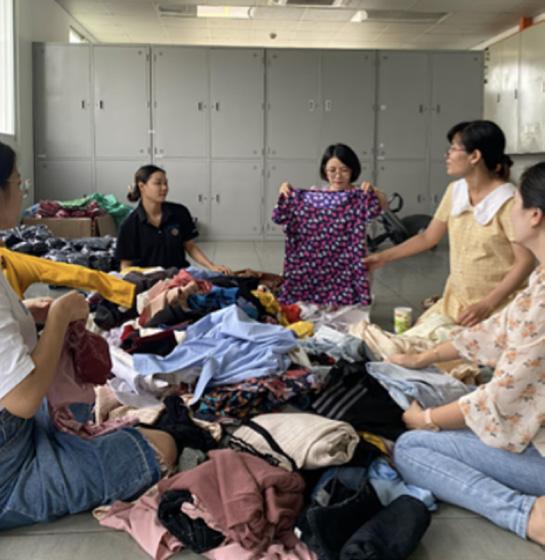
P u b l i c a t i o n 0 7Y e a r 2 0 2 3 131
responsible resale, reuse, and recycling. The office expressed hope that these efforts will play a signifcant role in waste reduction and environmental protection.
Under Goal 12, our Thailand office observed the Annual Earth Day event by inviting colleagues to participate in a one-day plastic-free challenge contest. Staff were provided with practical tips to reduce plastic usage, and a symbolic gesture was made by turning off lights for one hour at noon.
They also implemented a comprehensive waste management strategy, recycling food waste into fertilizer using a composter, converting organic waste into energy, and transforming recyclable waste into monetary value for the procurement of eco-friendly office supplies.
The Hong Kong office launched the «Earth Day Go Camping» promotion program in collaboration with ‘yumeat’ and Ayam Brand, encouraging eco-friendly practices under Goal 12. Their most active participant in the program was rewarded.
An enlightening Green Farm Education Tour was organized by the China office. Activities included organic bread making and handson organic farming practices, fostering awareness of the ecological benefts associated with organic farming.
D e n i s A s i a P a c i f c P t e L t dE . S . G . R e p o r t 132
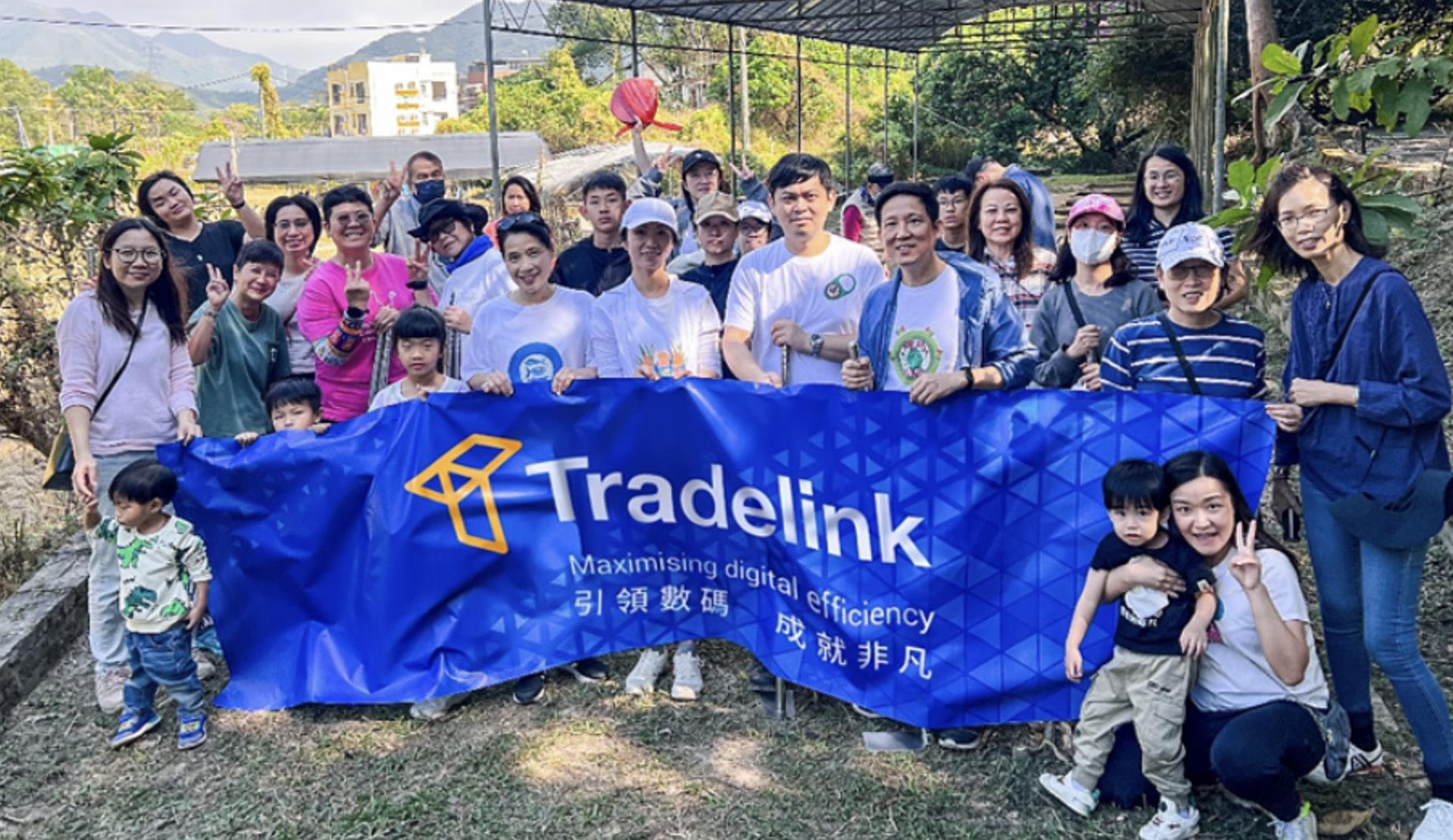
The Malaysia team utilized awards from the Sustainable Office 2022 program to organize an Environmental Education Program. The program, aligned with Goals 12, 14, and 15, included talks on zero waste, recycling, food waste management, and addressing single-use plastics. A Feedback Contest recognized and rewarded participants who actively engaged in quizzes and contributed innovative sustainability ideas.
In terms of Health and Wellness initiatives, in Thailand employees now have access to WE ftness clubs from July to December by utilizing their Sustainable Office Competition Awards 2022.
P u b l i c a t i o n 0 7Y e a r 2 0 2 3 133
Lastly, our Indonesia office organized various activities to celebrate Indonesia Independence Day while keeping in mind Health and Wellness. These included exercise sessions, a plant-based cooking competition, a Corporate Social Responsibility (CSR) event donating Ayam Brand products, and fundraising for an orphanage.
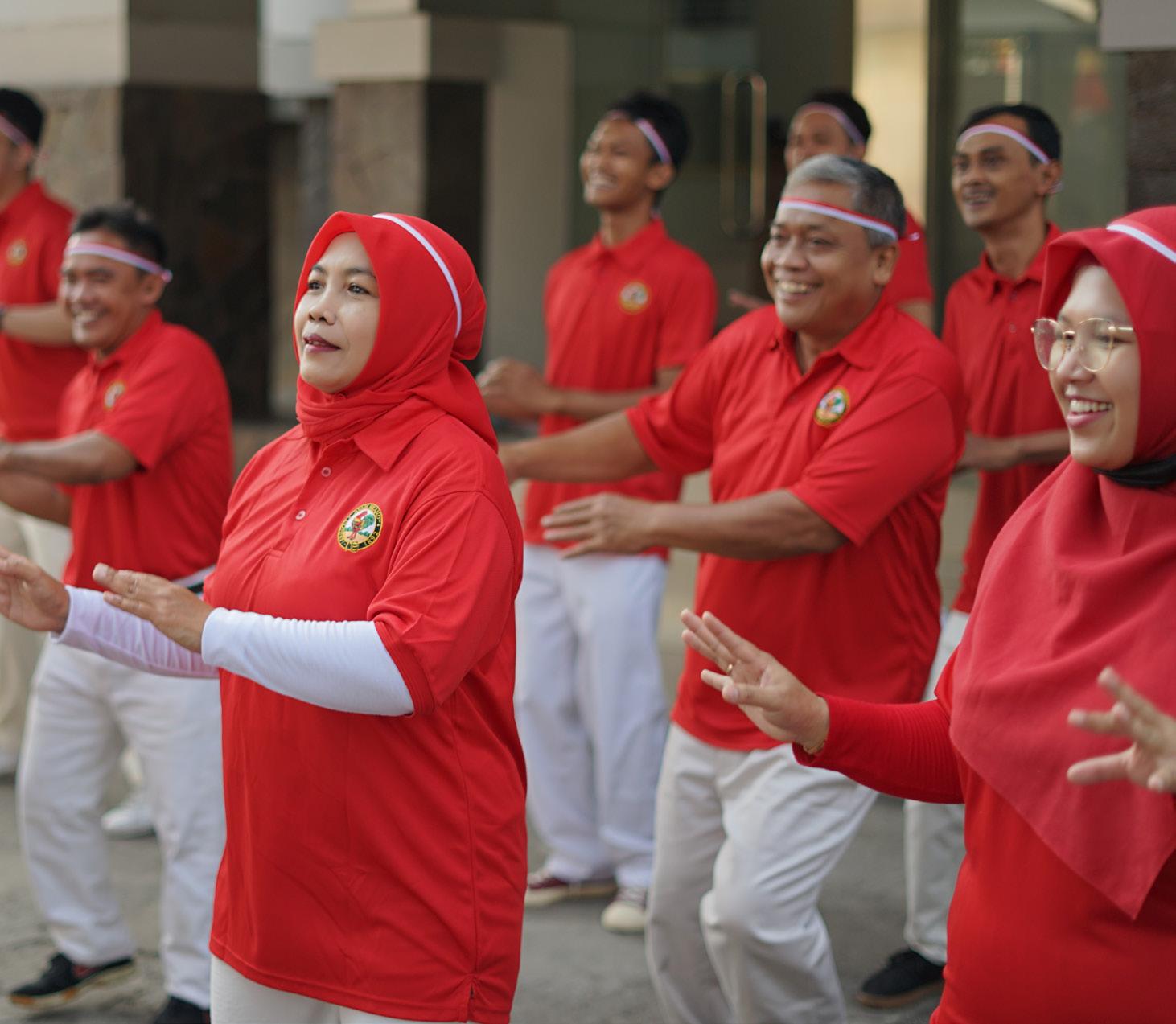
D e n i s A s i a P a c i f c P t e L t dE . S . G . R e p o r t 134
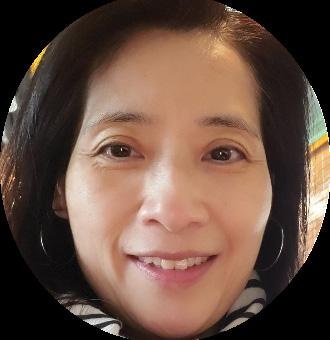
To participate in Maison Denis’ Sustainable Office Competition not only enabled us to encourage carbon emission reduction, and understand the importance of health and well-being in our living, but also inspired our way of thinking about how we can contribute more to the environment, and implement it into our daily life consistently. Let us develop together a better environment and conditions for our future generations.
Laurain Lee, Admin & HR Manager, Denis China Co. Ltd.
P u b l i c a t i o n 0 7Y e a r 2 0 2 3 135
Testimonial
Our Consumers
We seek to offer our consumers tremendous benefits that go beyond tightening world regulations and consumers’ normal expectations.
Clean labels
As a food manufacturer and marketeer, we aim to produce and distribute products which are as close to 100% natural as possible.
We use additives only when it is not possible to do without.
Our promise is that our flagship trademark Ayam Brand™ should be synonymous with clean labels, which means:
• a short and honest ingredient list
• GMO-Free
• Preservative-Free
• MSG-Free
• Trans fat-Free
In 2018, we reinforced the above requirements with a new policy, named “Green Labels”.
Depending on the market, around 350 to 400 additives are legally authorized to be used for food. We have reduced the number of additives down to around one hundred, selecting only those
D e n i s A s i a P a c i f c P t e L t dE . S . G . R e p o r t 136
additives with a pristine reputation.
With this initiative, we believe that we are paving the way for mass market food which is more natural, safer and healthier.
Mercury in canned tuna
Canned tuna stands as a cornerstone within our product line-up. We enjoy signifcant market shares in Malaysia, Singapore, and Brunei.
Among tuna consumers, concerns regarding mercury levels in pelagic fsh remain of prime importance.
We view it as our responsibility to keep consumers informed and to provide them with complete peace of mind when they consume tuna products bearing our trademarks. Since July 2016, we’ve diligently subjected every batch of our tuna production to mercury analysis conducted by an independent laboratory.
From July 2016 to December 2023, all of our 6000 production batches of canned tuna underwent testing to ensure that they all met the stringent global limit of 0.5 ppm of methyl mercury*. In 2023, our independent laboratory further enhanced its mercury testing capabilities, achieving a limit of detection of 0.002 ppm and a limit of quantifcation of 0.005 ppm.
P u b l i c a t i o n 0 7Y e a r 2 0 2 3 137
Of the tested batches, 96.6% exhibited mercury levels below 0.2 ppm, ranging from 0.005 ppm to 0.195 ppm. The remaining 3.4% of batches showed mercury levels ranging from 0.203 ppm to 0.296 ppm, well below the stringent limit of 0.5 ppm.
As expected, our consumers can continue to enjoy our canned tuna products with confidence, free from worries about mercury.
To the best of our knowledge, we remain the sole mass-market tuna brand worldwide committed to testing all our tuna production for mercury, addressing a primary concern among tuna consumers.
(*For a better understanding, it is important to know that infnitesimal traces of mercury or any other heavy metal naturally occur in all our foods. This is notably due to volcanic activity and land emissions and poses no risk to human health. What really matters is to be able to detect unusual levels (above 0.5 ppm) that would indicate mercury pollution resulting from the tuna’s diet.)
Radioactivity in fish
Although regulatory authorities have ensured the safety of radioactivity levels in all food distributed within our markets, we acknowledge that it remains a matter of concern for some of our consumers.
D e n i s A s i a P a c i f c P t e L t dE . S . G . R e p o r t 138
In response to this concern, we rigorously test samples from every single batch of sardines and mackerel. By the end of 2023, we had conducted tests on no fewer than 16,000 batches. These tests have consistently shown no radiation issues.
This unequivocally confrms that all the analyses have consistently yielded negative results. Consumers can rest assured that fsh bearing our trademarks are closely monitored and have not been exposed to radioactive pollution*.
(*For a better understanding, it is important to distinguish the normal level of radiation on earth, that poses no problem for the human body, and radioactive pollution, which is an abnormal level of radioactivity, caused by industrial or military activity. Our analyses aim to protect the consumer from the risks of radioactive pollution)
BPA
BPA (Bisphenol A) Awareness
BPA, an abbreviation for Bisphenol A, is an industrial chemical used in the production of certain plastics and resins since the 1960s. It is commonly found in polycarbonate plastics and epoxy resins, frequently used in containers for food and beverages.
Starting in 2011, the use of Bisphenol A in the composition of plastics for baby bottles was prohibited due to concerns regarding
P u b l i c a t i o n 0 7Y e a r 2 0 2 3 139
its potential to disrupt hormones. France took further action in 2015 by banning BPA in all food packaging materials, including cans.
In line with our commitment to adhere to stringent global food regulations, DAP has been diligently working since 2015 (and formalized under pledge number 5 in 2017) towards implementing BPA-FREE linings in all its cans. This endeavour involves meticulous and time-consuming efforts, including real-time ageing tests, to ensure that the new lining is not only effective but also safer than the previous coating.
We have been able to introduce BPA-FREE linings in cans for all sardines and mackerel in tomato sauce as well as our range of coconut products. Additionally, we are pleased to share that, since 2023, our entire range of canned tuna is produced using cans with BPA-FREE linings.
Today, a very limited handful of products still utilize coatings containing BPA due to inconclusive results from real-time ageing tests. Our research and development team is actively working on these products, and an updated list will be included in every report to maintain transparency.
D e n i s A s i a P a c i f c P t e L t dE . S . G . R e p o r t 140
The products that have not yet transitioned to cans with BPA-FREE linings as of the end of 2023 include:
• Barley
• Baked Beans range
• Plant-based luncheon meat
Our Environmental, Social, and Governance (ESG) vision for our consumers revolves around providing them with complete peace of mind when consuming our products. We strive to address, examine, and resolve any concerns pre-emptively, ensuring that our consumers can trust in the safety and quality of our offerings.
P u b l i c a t i o n 0 7Y e a r 2 0 2 3 141
Our World
DAP companies have always been close to the communities in which they operate. Our companies have participated for many years in several social and charitable activities with local partners. There are multiple examples of this.
Community Care Campaign
To eat is a basic human need. As a food manufacturer and marketeer, our obvious duty is to provide vulnerable people in our direct proximity with healthy and quality food.
Our long-running Corporate Social Responsibility Campaign in Malaysia, now in its sixteenth year, has contributed in excess of 2.14 million healthy meals to more than 27,238 people from 599 charity homes and NGOs over that period.
The Community Care Campaign 2023 was themed #AyamBersamaMu with the concept of ‘Add Health with Ayam Brand™’. It reached out to more than 1,000 children from 25 non-governmental organizations across six states and provided a two-month supply or approximately 35, 028 healthy meals.
Going beyond the contribution of its products, Ayam Brand™ in collaboration with KPJ Healthcare Group ran nutrition workshops to educate these children on healthier dietary choices following
D e n i s A s i a P a c i f c P t e L t dE . S . G . R e p o r t 142
the 3S (Suku-suku Separuh) Malaysian Healthy Plate concept and to address vision issues amongst these children. Ayam Brand also worked with Focus Point Group to provide free eye health screening, and prescription glasses to children from these homes who required them. Those who did require them, received their prescription spectacles soon after.
Children learned about making healthier dietary choices through an informative and engaging session with dieticians from KPJ Healthcare Group based on the Malaysian Healthy Plate, with an introduction to the importance of Omega-3 for their eye health. Each child was given the chance to put their new knowledge into practice by preparing themselves a healthy snack following the Suku-suku Separuh concept, guided by the KPJ and Ayam Brand team.
The children also participated in memory matching and ball toss games, which allowed them to practise their visual recall and handeye coordination to reinforce what they had learned at the workshop. Members of the winning team each received a medal, while all participants received gift bags.
To further enable each home to create healthy meals for the children, Ayam Brand also donated 2 months’ worth of Ayam Brand food products consisting of Ayam Brand™ Tuna Mayonnaise, Ayam Brand™ Baked Beans in Tomato Sauce, and Ayam Brand™ Soya Flakes Spread for all 25 non-governmental organizations.
P u b l i c a t i o n 0 7Y e a r 2 0 2 3 143
Loan to the National Gallery Singapore
DAP owns an imposing masterpiece: an oil on canvas named “Chô Bo” by the reputed French painter Joseph Inguimberty. Joseph Inguimberty was a famous teacher at the School of Fine Arts in Hanoi. He was the mentor of most of the more reputable Vietnamese artists of the modern art period. “Chô Bo” is therefore considered a principal historical and artistic piece, representative of the master’s influence on a full generation of South-East Asian painters.
As part of our ESG vision, we are convinced that an artistic masterpiece such as this should not remain locked away in a safe, and as such, unseen, but should be shared with the largest audience possible. “Chô Bo” has consequently been on loan to the National Gallery of Singapore since 2021. This central piece of the Vietnamese modern art gallery is featured on the main wall facing a similar scene, “Panorama of Chô Bo”, a giant lacquer painting by his famous Vietnamese student Nguyễn Văn Tỵ.
Due to its 160-year history, the Group owns some other beautiful pieces of art, representative of the art history of Southeast Asia, that we are willing to lend to museums rather than keeping them locked away.
D e n i s A s i a P a c i f c P t e L t dE . S . G . R e p o r t 144
365 Hours of Music
Since 2022, DAP has been a sponsor of the charitable initiative «365 HOURS OF MUSIC» from the organization SING’THEATER in Singapore. The goal is to bring joy to the sick and to vulnerable communities through music, songs, and stories.
In 2023 this translated into 22 hospital lobby concerts, 115 ward visits (for both children and adults) and 118 singing classes for vulnerable communities (Singapore Association of Visually Handicapped, Ang Mo Kio Family Services center for seniors, Foreign Domestic workers, and children with autism spectrum disorders). In 2023, they reached more than 10,000 people, including 3,445 patients.
Charity
Our dedicated staff members exhibit a high level of motivation, actively engaging in the social and charitable fabric of their communities. In 2023, we continued our commitment to reaching out to communities in need and sharing our resources with others. Here’s a glimpse of our impactful initiatives:
• Sydney, Australia:
Our team in Australia volunteered with the Not-for-Proft organisation Good 360, dedicating their time to sorting clothes. Good 360 serves as a vital link connecting charities, schools,
P u b l i c a t i o n 0 7Y e a r 2 0 2 3 145
and society’s most vulnerable with businesses willing to donate unsold or surplus goods, services, and disaster recovery essentials.
• Beijing, China:
Our office in Beijing continued its longstanding commitment to the donation program for the Orphanage in Beijing, marking the ffth consecutive year of participation.
• Shenzhen, China:
Denis Freres Shenzhen organised a group donation from all employees to the Spring Bud programme for girls from impoverished families. This initiative received warm support, not only from our employees but also from business partners including distributors and service providers.
• Hong Kong:
Our office in Hong Kong made generous donations totalling 410 kg of beverages and over 1,230 kg of instant noodles. These donations were facilitated through a partnership with «Feeding HK,» a charity committed to combating hunger and addressing food waste.
• Jakarata and Makasar, Indonesia:
In Jakarta, our contribution was a donation to charity of Ayam Brand™ products, including Sardines, Mackerel, Curry Tuna,
D e n i s A s i a P a c i f c P t e L t dE . S . G . R e p o r t 146
and Coconut Milk. On the occasion of Indonesia’s Independence Day, we also gave some hearty Indonesian traditional dishes, such as Tumpeng.
In Makassar, our commitment continued as we curated food packages using Ayam Brand products, featuring items like Tuna and Baked Beans, and during the holy month of Ramadan, Sardines and Mackerel. In addition to our food-focused endeavors, we also took steps to enhance the greenery in public areas near our office. Through tree planting initiatives, we aim to contribute to a healthier and more sustainable environment for the community.
• Taiping, Malaysia:
Guinea Foods, Mafpro, and SFI Food joined hands to make a positive impact on those who need it most. Our CSR program ‘Spreading Joy’ touched the lives of 200 individuals from underprivileged backgrounds, orphanages, and the disabled community. We brought together 18 volunteers to engage in diverse activities such as packing gifts, organising games, singing, dancing, and ensuring a seamless event flow. Additionally, our dedicated team served delicious meals and collected storybooks for underprivileged children.
P u b l i c a t i o n 0 7Y e a r 2 0 2 3 147
• Singapore:
In Singapore, we are continuing to work with ‘Food from the Heart’, subsiding Baked Beans, Corn and most recently Sardines. To reach struggling individuals and families in Singapore’s heartlands, Food from the Heart works with grassroots organisations, family service centres, senior activity centres and NGOs to provide island wide food assistance through its Community Food Pack programme. Currently, FFTH distributes through its 105 distribution points, providing monthly aid to 12,000 families.
• Bangkok, Thailand:
In Thailand, our office contributed signifcantly by donating 1,200 cartons of Coconut Milk (less fat) to a total of six charities, demonstrating our continuous commitment to supporting the local community.
• Ho Chi Minh City, Vietnam:
Our factory in Vietnam participates in a donation scheme with the charity REShare, to give cleaned and sorted clothes for reuse.
D e n i s A s i a P a c i f c P t e L t dE . S . G . R e p o r t 148
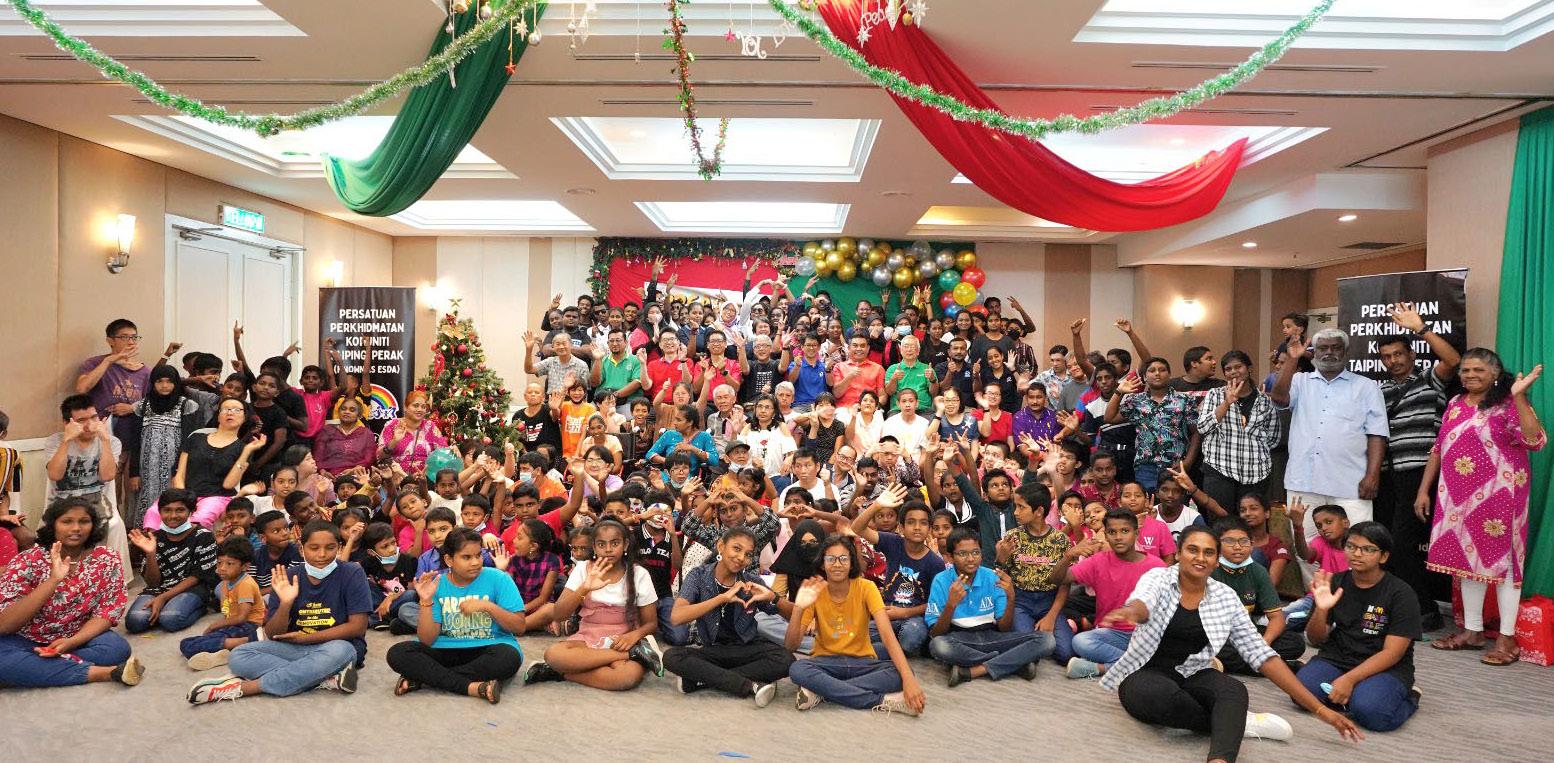
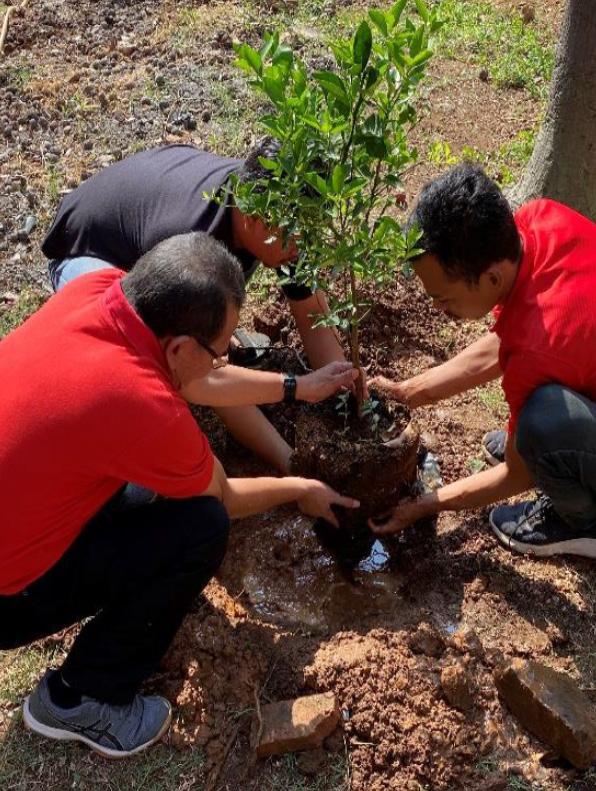
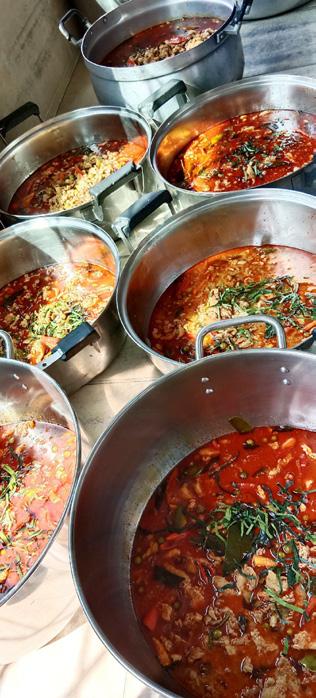
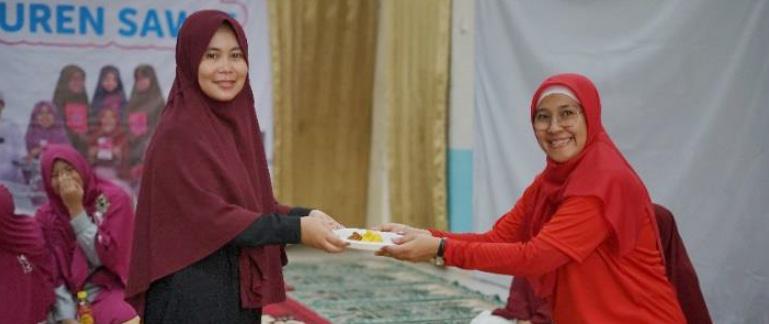
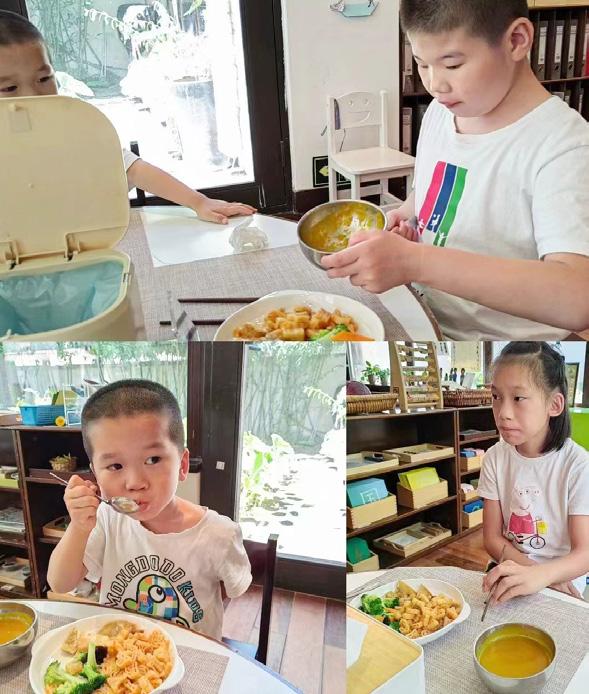
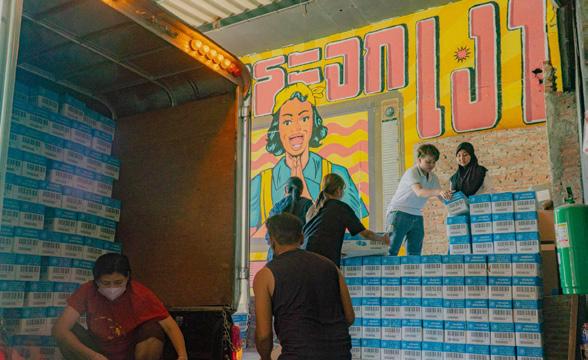
P u b l i c a t i o n 0 7Y e a r 2 0 2 3 149
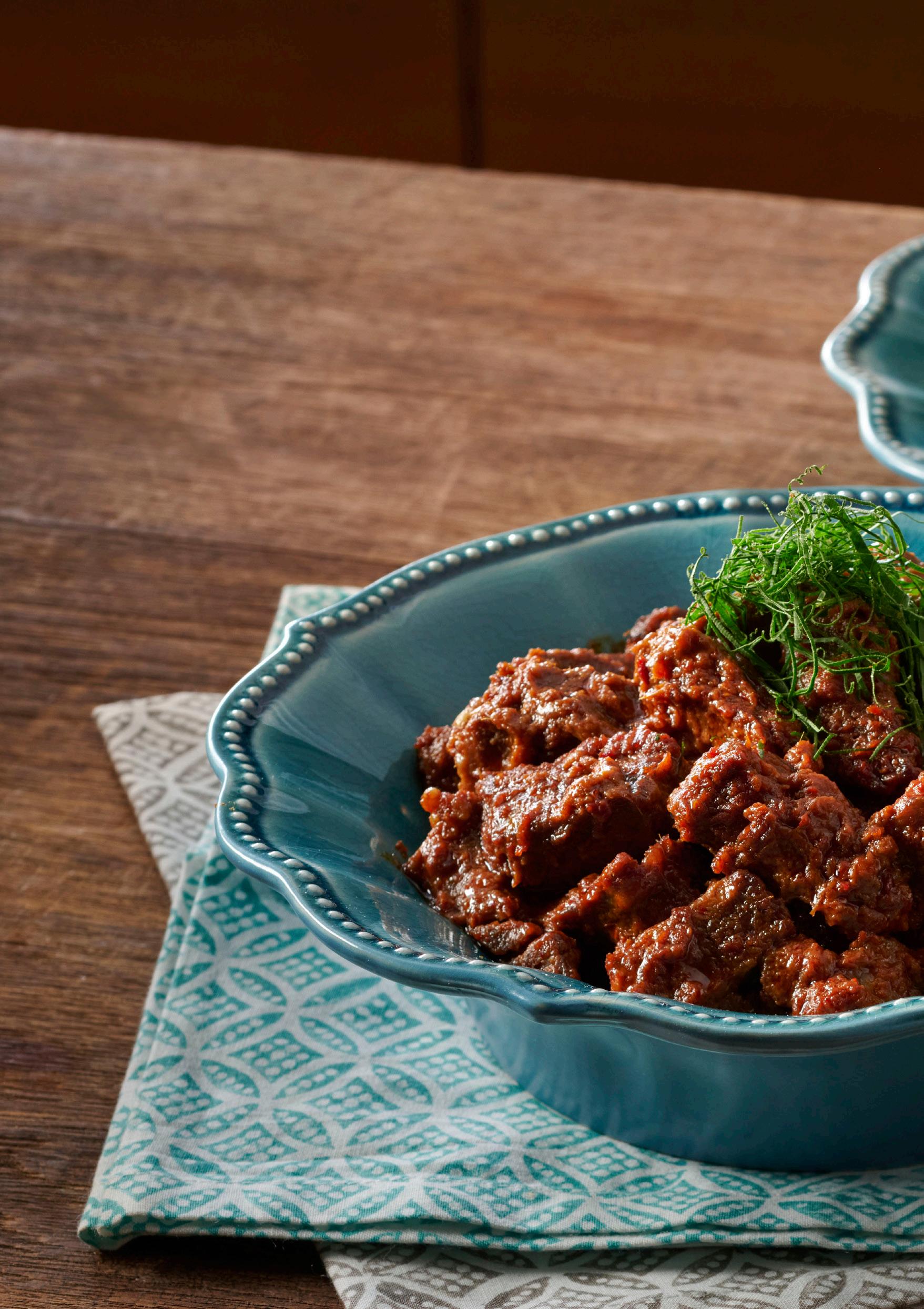
Chicken cooked with Ayam™ rendang paste and coconut milk.

Governance & Ethics
D e n i s A s i a P a c i f c P t e L t dE . S . G . R e p o r t 152
DAP has an excellent reputation for governance and ethics, built with consistency and determination over its long business history. The Company remains committed to the highest ethical and professional standards and intends to integrate new governance and ethics requirements as the world moves towards more transparency, complexity and globalization.
Since 2020, DAP management’s focus has been on the regional harmonization of best practice, better awareness of gender equality and the fight against corruption.
DAP, including its subsidiaries and related companies, is committed to the highest corporate governance practices.
The Board of Directors of Denis Asia Pacifc Pte Ltd consists of ten members, including the Group’s CEO with overall responsibility for strategy, investment, and bottom-line operations. As part of its commitment to best practice, the Company pays specifc attention to the composition of the board and guidance thereof, the role and responsibilities of the Directors, access to information and conduct of shareholders’ meetings.
Internally, an Audit Committee is in place, reporting to the Board of Directors with the responsibility to review audit plans for internal
P u b l i c a t i o n 0 7Y e a r 2 0 2 3 153 Governance
audit, to investigate any matters related to the Company’s internal control system and to work with external auditors to consolidate audited accounts.
Five directors of Denis Asia Pacifc Pte Ltd make up the Board of Directors of SFI Supplies Management. This board adheres to the same principles of governance and audit protocols.
D e n i s A s i a P a c i f c P t e L t dE . S . G . R e p o r t 154
(1) Code of ethics
DAP has a company code of ethics, which is published in the employee handbook and/or on the intranet for the companies that have it.
(2) Zero tolerance policy for severe wrongdoings
DAP has a zero-tolerance policy for severe wrongdoings. Employees and outside parties, such as suppliers, customers, contractors, and other stakeholders, are requested to report any issue to the management. They may use a website, ‘DG-report.net’, where their anonymity will be protected. The zero-tolerance text together with the whistle-blowers’ link are printed on the frst pages of text of the employee handbook and on our main commercial and corporate websites. This may be used to report any concern or complaint regarding:
(1) Corruption and bribery
(2) Failure to comply with laws and regulations
(3) Harassment
(4) Discrimination based on gender, cultural background or origin, and disabilities
(5) Theft
(6) Forgery
(7) Misappropriation of funds and classifed documents
(8) Abuse and misrepresentation of power and authority
P u b l i c a t i o n 0 7Y e a r 2 0 2 3 155
Ethics
(9) well-founded suspicion of modern slavery within our companies or within our partner companies, including but not limited to slavery, servitude, forced marriage, forced labour, debt bondage, deceptive recruiting for labour services and the worst forms of child labour.
This procedure is meant to protect genuine whistle-blowers from any unfair treatment as a result of their report. Maison Denis encourages employees and outside parties to put their names to their allegations whenever possible.
To be fair to any employee designated by an anonymous report, such reports will be examined by the Ethics Committee with a view to discarding frivolous claims and allegations without evidence. For serious and documented reports, it is the Ethics Committee’s duty to investigate and even to report to the police if required by the gravity of the offence.
We rest assured that the website is known by most of our employees, because it is a question included in the anticorruption test. It is also mentioned in the anticorruption policy that all staff must read and approve.
The Ethics Committee
The Ethics Committee has three main roles:
D e n i s A s i a P a c i f c P t e L t dE . S . G . R e p o r t 156
(1) to set ethics rules that apply to all companies under DAP, except if the local law regulates differently.
(2) to approve local company ethics & rules of behaviour.
(3) to deliberate on reports of severe wrongdoings and to suggest what steps should be taken by the CEO, including disciplinary sanctions or dismissal, if needed. Should the CEO choose not to follow the Ethics Committee’s recommendations, they must account to the company shareholders with his reasoning.
The Ethics Committee is made up of representative(s) of the shareholders, of the CEO, and representative(s) of the senior management. It should include at least one external member, chosen for his/her knowledge of the company and his/her moral standing.
As of today, the Ethics Committee’s external member is Mrs. Ai Ming Lee, Senior Consultant at Dentons-Rodyk, Singapore Justice of the Peace, Member of the Singapore Public Service Commission’s Disciplinary Panel of Persons, the Board of Visiting Justices and Board of Inspection of the Singapore Prison Services, and the Singapore Copyright Tribunal, and Independent Director on the Boards of Temasek Life Sciences and Lendlease Global Commercial Reit.
The Ethics Committee met on February 16th, 2024, to review the 2023 ESG period.
P u b l i c a t i o n 0 7Y e a r 2 0 2 3 157
• There were two reports through ‘DG-report.net’ in 2023.
• Report 9-MY dated 06/12/2023. This anonymous report presented the issue of a company executive allegedly being verbally rude with the team under his responsibility. The report was immediately shared with the Ethics Committee, the subholding director, the HR manager, and the GM of the company. The next day, the allegations were verifed, and the materiality was confrmed. The executive had reacted verbally to repeated mistakes made by the staff in carrying out daily operations. The reprimand was justifed but was excessive in terms of language and tone. The GM and the HR manager of the site conducted a counselling session for this executive and reported the session to the sub-holding director.
• Report 5-SG dated 12/06/2023. This report was confused and presented a complaint from a Singaporean company about a member of staff without explaining the issue nor mentioning the name or the occupation of this person. Our Singapore HR manager contacted the company concerned but could not fnd anybody who was aware of this report. The case appeared to have no materiality and was dismissed.
• In 2022, the Ethics Committee discussed the future of the Company’s ethics policies and decided that it would be
D e n i s A s i a P a c i f c P t e L t dE . S . G . R e p o r t 158
reasonable and worthwhile to rewrite our policies and to align them with UNGC as far as possible.
A governance working group was formed and worked on the various alignments as follows:
• 25/04/2024 Anti-corruption and governance. We were at the required level for the anti-corruption policy. The working group improved the processes of governance in the areas of risk evaluation and debriefs.
• 01/05/2024 Human rights. The main focus was on strengthening our code of conduct for our suppliers and partners in business. We added focus on the question of modern slavery.
• 08/06/2024. Environmental policies. The working group confrmed that this is under control in terms of Scope 1 and 2, but more commitment is required under Scope 3, notably through our supplier code of conduct.
• The Ethics Committee decided also to focus in 2023 on two policies related to women.
• In Malaysia, in line with new regulations, we re-enforced our policies to prevent sexual harassment. The Group policy in the staff handbook was updated and posters are now displayed in various places within our facilities and offices.
P u b l i c a t i o n 0 7Y e a r 2 0 2 3 159
• DAP is also progressing in its policies relating to the empowerment of women. In 2023, we assessed our rating using the WEP assessment tools. Our priority lies in leadership awareness and commitment and in improvements at workplace level.
• The Ethics Committee reviews progress in the fght against corruption and bribery, as decided by the shareholders and the CEO during the previous Ethics Committee meeting. The plan specifes different obligations to be fulflled according to the risk of various categories of employees being exposed to corruption:
- In 2023, factory and warehouse workers received training and signed an anti-corruption pledge.
- Every two years, office employees must complete an e-learning program on anti-corruption and bribery and obtain an e-certifcate. The management team defned the content of the e-learning based on the advice of law frms in our various markets and confrmed a common text for them, based on the most stringent regulations.
The frst round was completed for all office employees, except in China. The e-learning portal is not working in China and the process has to be done manually. It should be completed in the frst quarter of 2024.
D e n i s A s i a P a c i f c P t e L t dE . S . G . R e p o r t 160
For the other companies, the second round has already started with the Singapore office.
Anti-corruption e-certifcation is mandatory for all office staff up to the CEO.
- Staff potentially at risk (sales, procurement, marketing,…) have started receiving specifc training sessions. This was completed in Malaysia in 2023 for 77 people. Singapore, Australia and Thailand will complete the sessions in April 2024. We have yet to select the relevant consultant to conduct sessions for Vietnam and China.
In our Group vision, corruption and bribery will result in suspension of work during any investigation and if proven, automatic dismissal and reporting to the relevant public authorities. The zero-tolerance tone at the top should be understood by all company employees.
At the time of the report, 98% of the 251 executives and managers have passed the frst round of the anti-corruption test, and 10% of the 251 executives and managers have passed the second round.
95% of the 1527 factory and warehouse workers received anticorruption training and signed the anti-corruption pledge.
P u b l i c a t i o n 0 7Y e a r 2 0 2 3 161
 Passion mousse with Ayam Brand™ coconut cream
Passion mousse with Ayam Brand™ coconut cream

Conclusion by our CEO
The past year, 2023, proved to be a period of signifcant activity and challenges for our operations.
It has also been a year of recognition for us, as we received several awards that highlight our progress and achievements in ESG.
We are particularly proud of our new capabilities in renewable energy, our understanding of our scope 3 emissions, the life cycle assessment of our products, and the enhancement of our governance standards, especially in combating corruption and modern slavery.
This progress is only possible through the conviction of management and the support of all the employees whom I want to thank here.
We also see ESG cooperation developing with more and more suppliers and customers which is both satisfying and encouraging.
Our vision for the future is clear. We are allocating two years to implement a global ESG framework aligned with European standards within that of the Corporate Sustainability Reporting Directive (CSRD). This framework will encompass all activities of the Maison Denis.
The years 2024 and 2025 will demand signifcant efforts from all of us, but they will be interesting, educational, and rewarding.
D e n i s A s i a P a c i f c P t e L t dE . S . G . R e p o r t 164
Again, I would like to thank all employees and partners for their contribution and dedication to the sustainability vision of our company.
Fabien Reyjal C.E.O.
P u b l i c a t i o n 0 7Y e a r 2 0 2 3 165

D e n i s A s i a P a c i f c P t e L t dE . S 166 ESG committee Denis Asia Pacific Pte Ltd Denis Building 21 Tagore Lane Singapore 787479
Kueh Bangkit with Ayam Brand™ coconut milk light







































 DAVINA ROONEY, CHIEF EXECUTIVE OFFICER GREEN BUILDING COUNCIL OF AUSTRALIA
DAVINA ROONEY, CHIEF EXECUTIVE OFFICER GREEN BUILDING COUNCIL OF AUSTRALIA




 Curry with Ayam Brand ™ mackerel in tomato sauce
Curry with Ayam Brand ™ mackerel in tomato sauce


























 Passion mousse with Ayam Brand™ coconut cream
Passion mousse with Ayam Brand™ coconut cream

